- Privacy Policy
Buy Me a Coffee

Home » 500+ Physics Research Topics

500+ Physics Research Topics
Table of Contents

Physics is the study of matter, energy, and the fundamental forces that govern the universe. It is a broad and fascinating field that has given us many of the greatest scientific discoveries in history , from the theory of relativity to the discovery of the Higgs boson. As a result, physics research is always at the forefront of scientific advancement, and there are countless exciting topics to explore. In this blog post, we will take a look at some of the most fascinating and cutting-edge physics research topics that are being explored by scientists today. Whether you are a student, researcher, or simply someone with a passion for science, there is sure to be something in this list that will pique your interest.
Physics Research Topics
Physics Research Topics are as follows:
Physics Research Topics for Grade 9
- Investigating the properties of waves: amplitude, frequency, wavelength, and speed.
- The effect of temperature on the expansion and contraction of materials.
- The relationship between mass, velocity, and momentum.
- The behavior of light in different mediums and the concept of refraction.
- The effect of gravity on objects and the concept of weight.
- The principles of electricity and magnetism and their applications.
- The concept of work, energy, and power and their relationship.
- The study of simple machines and their efficiency.
- The behavior of sound waves and the concept of resonance.
- The properties of gases and the concept of pressure.
- The principles of heat transfer and thermal energy.
- The study of motion, including speed, velocity, and acceleration.
- The behavior of fluids and the concept of viscosity.
- The concept of density and its applications.
- The study of electric circuits and their components.
- The principles of nuclear physics and their applications.
- The behavior of electromagnetic waves and the concept of radiation.
- The properties of solids and the concept of elasticity.
- The study of light and the electromagnetic spectrum.
- The concept of force and its relationship to motion.
- The behavior of waves in different mediums and the concept of interference.
- The principles of thermodynamics and their applications.
- The study of optics and the concept of lenses.
- The concept of waves and their characteristics.
- The study of atomic structure and the behavior of subatomic particles.
- The principles of quantum mechanics and their applications.
- The behavior of light and the concept of polarization.
- The study of the properties of matter and the concept of phase transitions.
- The concept of work done by a force and its relationship to energy.
- The study of motion in two dimensions, including projectile motion and circular motion.
Physics Research Topics for Grade 10
- Investigating the motion of objects on inclined planes
- Analyzing the effect of different variables on pendulum oscillations
- Understanding the properties of waves through the study of sound
- Investigating the behavior of light through refraction and reflection experiments
- Examining the laws of thermodynamics and their applications in real-life situations
- Analyzing the relationship between electric fields and electric charges
- Understanding the principles of magnetism and electromagnetism
- Investigating the properties of different materials and their conductivity
- Analyzing the concept of work, power, and energy in relation to mechanical systems
- Investigating the laws of motion and their application in real-life situations
- Understanding the principles of nuclear physics and radioactivity
- Analyzing the properties of gases and the behavior of ideal gases
- Investigating the concept of elasticity and Hooke’s law
- Understanding the properties of liquids and the concept of buoyancy
- Analyzing the behavior of simple harmonic motion and its applications
- Investigating the properties of electromagnetic waves and their applications
- Understanding the principles of wave-particle duality and quantum mechanics
- Analyzing the properties of electric circuits and their applications
- Investigating the concept of capacitance and its application in circuits
- Understanding the properties of waves in different media and their applications
- Analyzing the principles of optics and the behavior of lenses
- Investigating the properties of forces and their application in real-life situations
- Understanding the principles of energy conservation and its applications
- Analyzing the concept of momentum and its conservation in collisions
- Investigating the properties of sound waves and their applications
- Understanding the behavior of electric and magnetic fields in charged particles
- Analyzing the principles of thermodynamics and the behavior of gases
- Investigating the properties of electric generators and motors
- Understanding the principles of electromagnetism and electromagnetic induction
- Analyzing the behavior of waves and their interference patterns.
Physics Research Topics for Grade 11
- Investigating the effect of temperature on the resistance of a wire
- Determining the velocity of sound in different mediums
- Measuring the force required to move a mass on an inclined plane
- Examining the relationship between wavelength and frequency of electromagnetic waves
- Analyzing the reflection and refraction of light through various media
- Investigating the properties of simple harmonic motion
- Examining the efficiency of different types of motors
- Measuring the acceleration due to gravity using a pendulum
- Determining the index of refraction of a material using Snell’s law
- Investigating the behavior of waves in different mediums
- Analyzing the effect of temperature on the volume of a gas
- Examining the relationship between current, voltage, and resistance in a circuit
- Investigating the principles of Coulomb’s law and electric fields
- Analyzing the properties of electromagnetic radiation
- Investigating the properties of magnetic fields
- Examining the behavior of light in different types of lenses
- Measuring the speed of light using different methods
- Investigating the properties of capacitors and inductors in circuits
- Analyzing the principles of simple harmonic motion in springs
- Examining the relationship between force, mass, and acceleration
- Investigating the behavior of waves in different types of materials
- Determining the energy output of different types of batteries
- Analyzing the properties of electric circuits
- Investigating the properties of electric and magnetic fields
- Examining the principles of radioactivity
- Measuring the heat capacity of different materials
- Investigating the properties of thermal conduction
- Examining the behavior of light in different types of mirrors
- Analyzing the principles of electromagnetic induction
- Investigating the properties of waves in different types of strings.
Physics Research Topics for Grade 12
- Investigating the efficiency of solar panels in converting light energy to electrical energy.
- Studying the behavior of waves in different mediums.
- Analyzing the relationship between temperature and pressure in ideal gases.
- Investigating the properties of electromagnetic waves and their applications.
- Analyzing the behavior of light and its interaction with matter.
- Examining the principles of quantum mechanics and their applications.
- Investigating the properties of superconductors and their potential uses.
- Studying the properties of semiconductors and their applications in electronics.
- Analyzing the properties of magnetism and its applications.
- Investigating the properties of nuclear energy and its applications.
- Studying the principles of thermodynamics and their applications.
- Analyzing the properties of fluids and their behavior in different conditions.
- Investigating the principles of optics and their applications.
- Studying the properties of sound waves and their behavior in different mediums.
- Analyzing the properties of electricity and its applications in different devices.
- Investigating the principles of relativity and their applications.
- Studying the properties of black holes and their effect on the universe.
- Analyzing the properties of dark matter and its impact on the universe.
- Investigating the principles of particle physics and their applications.
- Studying the properties of antimatter and its potential uses.
- Analyzing the principles of astrophysics and their applications.
- Investigating the properties of gravity and its impact on the universe.
- Studying the properties of dark energy and its effect on the universe.
- Analyzing the principles of cosmology and their applications.
- Investigating the properties of time and its effect on the universe.
- Studying the properties of space and its relationship with time.
- Analyzing the principles of the Big Bang Theory and its implications.
- Investigating the properties of the Higgs boson and its impact on particle physics.
- Studying the properties of string theory and its implications.
- Analyzing the principles of chaos theory and its applications in physics.
Physics Research Topics for UnderGraduate
- Investigating the effects of temperature on the conductivity of different materials.
- Studying the behavior of light in different mediums.
- Analyzing the properties of superconductors and their potential applications.
- Examining the principles of thermodynamics and their practical applications.
- Investigating the behavior of sound waves in different environments.
- Studying the characteristics of magnetic fields and their applications.
- Analyzing the principles of optics and their role in modern technology.
- Examining the principles of quantum mechanics and their implications.
- Investigating the properties of semiconductors and their use in electronics.
- Studying the properties of gases and their behavior under different conditions.
- Analyzing the principles of nuclear physics and their practical applications.
- Examining the properties of waves and their applications in communication.
- Investigating the principles of relativity and their implications for the nature of space and time.
- Studying the behavior of particles in different environments, including accelerators and colliders.
- Analyzing the principles of chaos theory and their implications for complex systems.
- Examining the principles of fluid mechanics and their applications in engineering and science.
- Investigating the principles of solid-state physics and their applications in materials science.
- Studying the properties of electromagnetic waves and their use in modern technology.
- Analyzing the principles of gravitation and their role in the structure of the universe.
- Examining the principles of quantum field theory and their implications for the nature of particles and fields.
- Investigating the properties of black holes and their role in astrophysics.
- Studying the principles of string theory and their implications for the nature of matter and energy.
- Analyzing the properties of dark matter and its role in cosmology.
- Examining the principles of condensed matter physics and their applications in materials science.
- Investigating the principles of statistical mechanics and their implications for the behavior of large systems.
- Studying the properties of plasma and its applications in fusion energy research.
- Analyzing the principles of general relativity and their implications for the nature of space-time.
- Examining the principles of quantum computing and its potential applications.
- Investigating the principles of high energy physics and their role in understanding the fundamental laws of nature.
- Studying the principles of astrobiology and their implications for the search for life beyond Earth.
Physics Research Topics for Masters
- Investigating the principles and applications of quantum cryptography.
- Analyzing the behavior of Bose-Einstein condensates and their potential applications.
- Studying the principles of photonics and their role in modern technology.
- Examining the properties of topological materials and their potential applications.
- Investigating the principles and applications of graphene and other 2D materials.
- Studying the principles of quantum entanglement and their implications for information processing.
- Analyzing the principles of quantum field theory and their implications for particle physics.
- Examining the properties of quantum dots and their use in nanotechnology.
- Investigating the principles of quantum sensing and their potential applications.
- Studying the behavior of quantum many-body systems and their potential applications.
- Analyzing the principles of cosmology and their implications for the early universe.
- Examining the principles of dark energy and dark matter and their role in cosmology.
- Investigating the properties of gravitational waves and their detection.
- Studying the principles of quantum computing and their potential applications in solving complex problems.
- Analyzing the properties of topological insulators and their potential applications in quantum computing and electronics.
- Examining the principles of quantum simulations and their potential applications in studying complex systems.
- Investigating the principles of quantum error correction and their implications for quantum computing.
- Studying the behavior of quarks and gluons in high energy collisions.
- Analyzing the principles of quantum phase transitions and their implications for condensed matter physics.
- Examining the principles of quantum annealing and their potential applications in optimization problems.
- Investigating the properties of spintronics and their potential applications in electronics.
- Studying the behavior of non-linear systems and their applications in physics and engineering.
- Analyzing the principles of quantum metrology and their potential applications in precision measurement.
- Examining the principles of quantum teleportation and their implications for information processing.
- Investigating the properties of topological superconductors and their potential applications.
- Studying the principles of quantum chaos and their implications for complex systems.
- Analyzing the properties of magnetars and their role in astrophysics.
- Examining the principles of quantum thermodynamics and their implications for the behavior of small systems.
- Investigating the principles of quantum gravity and their implications for the structure of the universe.
- Studying the behavior of strongly correlated systems and their applications in condensed matter physics.
Physics Research Topics for PhD
- Quantum computing: theory and applications.
- Topological phases of matter and their applications in quantum information science.
- Quantum field theory and its applications to high-energy physics.
- Experimental investigations of the Higgs boson and other particles in the Standard Model.
- Theoretical and experimental study of dark matter and dark energy.
- Applications of quantum optics in quantum information science and quantum computing.
- Nanophotonics and nanomaterials for quantum technologies.
- Development of advanced laser sources for fundamental physics and engineering applications.
- Study of exotic states of matter and their properties using high energy physics techniques.
- Quantum information processing and communication using optical fibers and integrated waveguides.
- Advanced computational methods for modeling complex systems in physics.
- Development of novel materials with unique properties for energy applications.
- Magnetic and spintronic materials and their applications in computing and data storage.
- Quantum simulations and quantum annealing for solving complex optimization problems.
- Gravitational waves and their detection using interferometry techniques.
- Study of quantum coherence and entanglement in complex quantum systems.
- Development of novel imaging techniques for medical and biological applications.
- Nanoelectronics and quantum electronics for computing and communication.
- High-temperature superconductivity and its applications in power generation and storage.
- Quantum mechanics and its applications in condensed matter physics.
- Development of new methods for detecting and analyzing subatomic particles.
- Atomic, molecular, and optical physics for precision measurements and quantum technologies.
- Neutrino physics and its role in astrophysics and cosmology.
- Quantum information theory and its applications in cryptography and secure communication.
- Study of topological defects and their role in phase transitions and cosmology.
- Experimental study of strong and weak interactions in nuclear physics.
- Study of the properties of ultra-cold atomic gases and Bose-Einstein condensates.
- Theoretical and experimental study of non-equilibrium quantum systems and their dynamics.
- Development of new methods for ultrafast spectroscopy and imaging.
- Study of the properties of materials under extreme conditions of pressure and temperature.
Random Physics Research Topics
- Quantum entanglement and its applications
- Gravitational waves and their detection
- Dark matter and dark energy
- High-energy particle collisions and their outcomes
- Atomic and molecular physics
- Theoretical and experimental study of superconductivity
- Plasma physics and its applications
- Neutrino oscillations and their detection
- Quantum computing and information
- The physics of black holes and their properties
- Study of subatomic particles like quarks and gluons
- Investigation of the nature of time and space
- Topological phases in condensed matter systems
- Magnetic fields and their applications
- Nanotechnology and its impact on physics research
- Theory and observation of cosmic microwave background radiation
- Investigation of the origin and evolution of the universe
- Study of high-temperature superconductivity
- Quantum field theory and its applications
- Study of the properties of superfluids
- The physics of plasmonics and its applications
- Experimental and theoretical study of semiconductor materials
- Investigation of the quantum Hall effect
- The physics of superstring theory and its applications
- Theoretical study of the nature of dark matter
- Study of quantum chaos and its applications
- Investigation of the Casimir effect
- The physics of spintronics and its applications
- Study of the properties of topological insulators
- Investigation of the nature of the Higgs boson
- The physics of quantum dots and its applications
- Study of quantum many-body systems
- Investigation of the nature of the strong force
- Theoretical and experimental study of photonics
- Study of topological defects in condensed matter systems
- Investigation of the nature of the weak force
- The physics of plasmas in space
- Study of the properties of graphene
- Investigation of the nature of antimatter
- The physics of optical trapping and manipulation
- Study of the properties of Bose-Einstein condensates
- Investigation of the nature of the neutrino
- The physics of quantum thermodynamics
- Study of the properties of quantum dots
- Investigation of the nature of dark energy
- The physics of magnetic confinement fusion
- Study of the properties of topological quantum field theories
- Investigation of the nature of gravitational lensing
- The physics of laser cooling and trapping
- Study of the properties of quantum Hall states.
- The effects of dark energy on the expansion of the universe
- Quantum entanglement and its applications in cryptography
- The study of black holes and their event horizons
- The potential existence of parallel universes
- The relationship between dark matter and the formation of galaxies
- The impact of solar flares on the Earth’s magnetic field
- The effects of cosmic rays on human biology
- The development of quantum computing technology
- The properties of superconductors at high temperatures
- The search for a theory of everything
- The study of gravitational waves and their detection
- The behavior of particles in extreme environments such as neutron stars
- The relationship between relativity and quantum mechanics
- The development of new materials for solar cells
- The study of the early universe and cosmic microwave background radiation
- The physics of the human voice and speech production
- The behavior of matter in extreme conditions such as high pressure and temperature
- The properties of dark matter and its interactions with ordinary matter
- The potential for harnessing nuclear fusion as a clean energy source
- The study of high-energy particle collisions and the discovery of new particles
- The physics of biological systems such as the brain and DNA
- The behavior of fluids in microgravity environments
- The properties of graphene and its potential applications in electronics
- The physics of natural disasters such as earthquakes and tsunamis
- The development of new technologies for space exploration and travel
- The study of atmospheric physics and climate change
- The physics of sound and musical instruments
- The behavior of electrons in quantum dots
- The properties of superfluids and Bose-Einstein condensates
- The physics of animal locomotion and movement
- The development of new imaging techniques for medical applications
- The physics of renewable energy sources such as wind and hydroelectric power
- The properties of quantum materials and their potential for quantum computing
- The physics of sports and athletic performance
- The study of magnetism and magnetic materials
- The physics of earthquakes and the prediction of seismic activity
- The behavior of plasma in fusion reactors
- The properties of exotic states of matter such as quark-gluon plasma
- The development of new technologies for energy storage
- The physics of fluids in porous media
- The properties of quantum dots and their potential for new technologies
- The study of materials under extreme conditions such as extreme temperatures and pressures
- The physics of the human body and medical imaging
- The development of new materials for energy conversion and storage
- The study of cosmic rays and their effects on the atmosphere and human health
- The physics of friction and wear in materials
- The properties of topological materials and their potential for new technologies
- The physics of ocean waves and tides
- The behavior of particles in magnetic fields
- The properties of complex networks and their application in various fields
About the author
Muhammad Hassan
Researcher, Academic Writer, Web developer
You may also like

500+ Quantitative Research Titles and Topics

500+ Qualitative Research Titles and Topics

350+ Biology Research Topics

500+ Criminal Justice Research Topics

500+ Google Scholar Research Topics

300+ AP Research Topic Ideas
- Diversity & Inclusion
- Community Values
- Visiting MIT Physics
- People Directory
- Faculty Awards
- History of MIT Physics
- Policies and Procedures
- Departmental Committees
- Academic Programs Team
- Finance Team
- Meet the Academic Programs Team
- Prospective Students
- Requirements
- Employment Opportunities
- Research Opportunities
- Graduate Admissions
- Doctoral Guidelines
- Financial Support
- Graduate Student Resources
- PhD in Physics, Statistics, and Data Science
- MIT LEAPS Program
- for Undergraduate Students
- for Graduate Students
- Mentoring Programs Info for Faculty
- Non-degree Programs
- Student Awards & Honors
- Astrophysics Observation, Instrumentation, and Experiment
- Astrophysics Theory
- Atomic Physics
- Condensed Matter Experiment
- Condensed Matter Theory
- High Energy and Particle Theory
- Nuclear Physics Experiment
- Particle Physics Experiment
- Quantum Gravity and Field Theory
- Quantum Information Science
- Strong Interactions and Nuclear Theory
- Center for Theoretical Physics
- Affiliated Labs & Centers
- Program Founder
- Competition
- Donor Profiles
- Patrons of Physics Fellows Society
- Giving Opportunties
- physics@mit Journal: Fall 2023 Edition
- Events Calendar
- Physics Colloquia
- Search for: Search
Research Areas

Physical Review Research
- Collections
- Editorial Team

Welcoming the Full Spectrum of Research
Physical Review Research is a fully open access, peer-reviewed, international, multidisciplinary journal covering all research topics of interest to the physics community.
The open access publishing model supports the aim of the journal—to broadly disseminate high-quality research from all of physics, the physical sciences, and interdisciplinary areas to a global audience. Our goal is to initiate conversations across traditional boundaries, facilitate potential new collaborations, and enable future discoveries.
The Experience You Value and Quality You Trust
PRResearch authors and readers will benefit from the rigorous peer review and high visibility that have defined the Physical Review author experience for decades.
The acceptance criteria for PRResearch are aligned with those of other long-established journals in the family, such as Physical Review A , B , C , D , and E . Manuscripts directly submitted, or transferred from another journal such as PRX or PRL, to PRResearch should:
- Present important and novel results that advance a particular field of research
- Generate interest for readers with a connection to physics
- Represent an authoritative and substantive addition to the body of literature
- Explore the subject matter comprehensively and thoroughly
By Scientists, For Scientists
Like all Physical Review journals, PRResearch is shaped by scientists to serve the physics community. This commitment ensures that its mission and standards prioritize the needs of researchers.
Why Publish in PRResearch?
Visibility and broad dissemination.
PRResearch authors will gain value through the high visibility and broad dissemination of their work by publishing in a fully open access publication that covers the whole spectrum of physics, physical sciences, and interdisciplinary research. In addition to reaching a general and diverse audience of readers, your research will benefit from increased recognition and impact through a number of features:
Open Access
The fully open access publishing model increases readership by making all articles immediately free to read, and allows reuse by readers anywhere in the world under a CC-BY 4.0 International license.
Editors’ Suggestions
Select papers will be chosen to direct readers to interesting and well-written articles in areas of research beyond their usual area of focus. On average these featured papers will receive more downloads and citations.
Featured in Physics
Papers of particular interest to a broad readership will receive additional coverage by being featured in the online magazine Physics , which provides news and expert commentary about research for the physics community.
Interest-generating papers will be promoted on the journal website, to journalists, and via social media, which increases the likelihood your research will be covered by industry publications and the popular press.
Sign up to receive regular email alerts from Physical Review Research
- Forgot your username/password?
- Create an account
Article Lookup
Paste a citation or doi, enter a citation.

- March 19, 2024 | The Melting Code Cracked: Over 100-Year-Old Physics Problem Solved
- March 19, 2024 | The End of Nuclear Secrecy? Underground Weapon Tests “Now Detectable With 99% Accuracy”
- March 19, 2024 | Unlocking Ebola’s Secrets: The Ubiquitin Key to Halting the Deadly Virus
- March 19, 2024 | Space Pioneer Thomas Stafford, Legendary Apollo 10 Commander, Dies at 93
- March 19, 2024 | Triassic Titans: New Crocodile Ancestor Discovered in Texas Reveals Secrets of Armor Evolution
Physics News
Read interesting physics news and the latest physics research discoveries on SciTechDaily. Your premier source for the latest revelations, innovations, and research in the captivating world of physics includes recent breakthroughs from sources like Harvard , MIT , Los Alamos , Rice University , Princeton , and Lawrence Berkeley .
We bring you up-to-the-minute information on a wide array of topics, spanning from fundamental physics and quantum mechanics to fluid dynamics, particle physics, and beyond. Our expertly curated content explores the diverse aspects of the universe, unveiling the underlying principles that govern its behavior and uncovering the mysteries that continue to intrigue scientists and enthusiasts alike. Stay informed about groundbreaking discoveries, technological advancements, and theoretical breakthroughs that deepen our understanding of the cosmos and reshape our perspective on reality.
Popular physics news topics include Particle , Nuclear , and Quantum Physics , as well as Astrophysics , Biophysics , Heliophysics , Geophysics , and Quantum Computing .
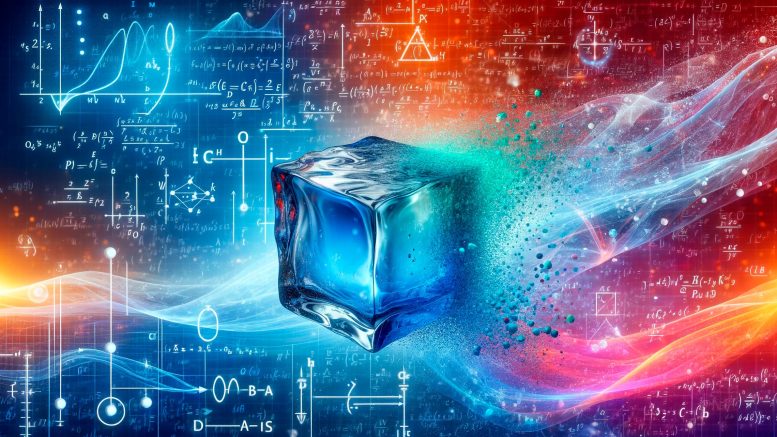
Physics March 19, 2024
The Melting Code Cracked: Over 100-Year-Old Physics Problem Solved
A professor has developed a groundbreaking theory that provides a universal method for predicting melting points, addressing a century-old challenge in physics and offering significant…

Atomic Clocks Surpass Fundamental Precision Limits Through Quantum Entanglement
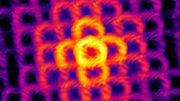
Unlocking the Nanoworld With Supercharged Vortex Beam Microscopy

Unlocking Quantum Secrets: The Revolutionary Dance of Nanoparticles
Revolutionizing Time With Cutting-Edge Laser Technology

Quantum Leap in Material Science: Researchers Unveil AI-Powered Atomic Fabrication Technique

Quantum Leap: How Spin Squeezing Pushes Limits of Atomic Clock Accuracy
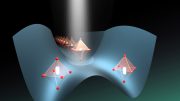
Physicists Unlock the Secrets of Light-Induced Ferroelectricity in Quantum Materials

Quantum Computing Breakthrough: Photons That Make Quantum Bits “Fly”

Physics March 15, 2024
Nature’s Hidden Gem: Miassite Unveils Its Superconductive Secret
Scientists at Ames National Laboratory have discovered miassite, a naturally occurring mineral that is an unconventional superconductor, challenging previous beliefs and advancing our understanding of…

Physics March 13, 2024
Nanocryotron “Superconductivity Switch” Supercharges Particle Detectors
Argonne researchers have created a new device that acts like a superconductivity switch, helping boost the signal of tiny particles in particle colliders. In particle…

Quantum Resonators Break the Thermal Rule
Researchers discovered non-uniform temperature distributions in micro-mechanical resonators, impacting their design and performance in quantum science and precision sensing. When measuring minor changes for quantities…

Physics March 12, 2024
The Next Einstein: New AI Can Develop New Theories of Physics
The development of a new theory is typically associated with the greats of physics. You might think of Isaac Newton or Albert Einstein, for example….

Physics March 11, 2024
Solid-State Qubits: Artificial Atoms Unlock Quantum Computing Breakthrough
JILA breakthrough in integrating artificial atoms with photonic circuits advances quantum computing efficiency and scalability. In quantum information science, many particles can act as “bits,”…

Strontium Unlocks the Quantum Secrets of Superconductivity
New insights can help scientists make superconducting materials more robust and useful. Superconductors have enabled new technologies for health care, transportation, and scientific exploration. Scientists…

Physics March 10, 2024
Plasmonics Breakthrough Unleashes New Era of Quantum Technologies
Quantum researchers uncover important implications for quantum technology. In a recent publication in Nature Physics, the LSU Quantum Photonics Group offers fresh insights into the…

Physics March 9, 2024
Ingenious New Method Measures the 3D Position of Individual Atoms
The method developed at the Universities of Bonn and Bristol uses an ingenious physical principle. For over ten years, physicists have been able to pinpoint…

Unlocking the Secrets of Semiconductors With a Single CLIMAT Measurement
An HZB physicist has developed a new method for the comprehensive characterization of semiconductors in a single measurement. The “Constant Light-Induced Magneto-Transport (CLIMAT)” is based…
- Utility Menu
Apply | Contact Us | Carol Davis Fund Anonymous Feedback to the Physics Chair

The Harvard Department of Physics and its collaborators are leaders in a broad spectrum of physics research, utilizing facilities and technologies that are continually being modified and improved with changing research interests and techniques. This provides students, postdoctoral fellows, and other research sholars with opportunities to work in first-class facilities at Harvard, both on individual investigator-led research projects and in scientific collaboration through a variety of research centers.
To learn more about research at our department, please explore the links at left.
- Faculty by Research Area
- Research Centers
- Research Scholar FAQs
- Useful Links for Research Scholars
- Scientific Ethics and Professional Integrity
Breakthrough in melting point prediction: Over 100-year-old physics problem solved
A longstanding problem in physics has finally been cracked by Professor Kostya Trachenko of Queen Mary University of London's School of Physical and Chemical Sciences. His research, published in the Physical Review E , unveils a general theory for predicting melting points, a fundamental property whose understanding has baffled scientists for over a century.
For decades, our understanding of the three basic states of matter -- solids, liquids, and gases -- relied on temperature-pressure phase diagrams. These diagrams depict the conditions under which each state exists, with distinct lines separating them. However, one crucial line, the melting line -- marking the transition between solid and liquid -- lacked a universal description.
Professor Trachenko's theory bridges this gap. By developing a new framework that incorporates recent advancements in liquid theory, he demonstrates that melting lines can be described by a simple parabolic equation. This not only offers a practical tool for predicting melting points but also reveals a surprising universality across different material types. This universality comes from observing that parameters in the parabolic equation are governed by fundamental physical constants such as the Planck constant and electron mass and charge.
"The simplicity and universality of this result are particularly exciting," explains Professor Trachenko. "It suggests that melting, despite its complexities, exhibits a fundamental unity across diverse systems, from noble gases to metals."
This discovery holds significant implications beyond theoretical physics. Accurate prediction of melting points is crucial in materials science, with applications ranging from drug development to designing advanced materials and other areas where predicting phase diagrams is important. Professor Trachenko's work paves the way for a deeper understanding of phase transitions and the creation of new materials with tailored properties.
- Materials Science
- Engineering
- Nature of Water
- Albert Einstein
- Inorganic Chemistry
- Quantum Physics
- Materials science
- Nanoparticle
- Knot theory
- Microeconomics
- Tensile strength
- Introduction to quantum mechanics
Story Source:
Materials provided by Queen Mary University of London . Note: Content may be edited for style and length.
Journal Reference :
- K. Trachenko. Theory of melting lines . Physical Review E , 2024; 109 (3) DOI: 10.1103/PhysRevE.109.034122
Cite This Page :
Explore More
- Leafhopper Inspires Invisibility Devices
- AI Meet AI: Talk to Each Other
- Managing Anger: Breathe, Don't Vent
- Tanks of the Triassic
- Holographic Message Encoded in Simple Plastic
- Maybe Our Universe Has No Dark Matter
- A New World of 2D Material Is Opening Up
- Best Way to Memorize Stuff? It Depends...
- Chimp: Persistence of Mother-Child Play
- High-Speed Microscale 3D Printing
Trending Topics
Strange & offbeat.
Articles on Quantum physics
Displaying 1 - 20 of 64 articles.

Gravity experiments on the kitchen table: why a tiny, tiny measurement may be a big leap forward for physics
Sam Baron , The University of Melbourne
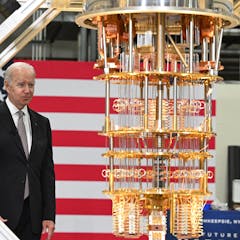
What is quantum advantage? A quantum computing scientist explains an approaching milestone marking the arrival of extremely powerful computers
Daniel Lidar , University of Southern California

New technique uses near-miss particle physics to peer into quantum world − two physicists explain how they are measuring wobbling tau particles
Jesse Liu , University of Cambridge and Dennis V. Perepelitsa , University of Colorado Boulder

Before he developed the atomic bomb, J. Robert Oppenheimer’s early work revolutionized the field of quantum chemistry – and his theory is still used today
Aaron W. Harrison , Austin College
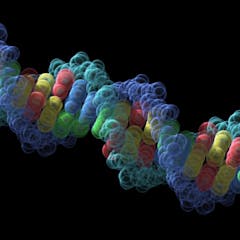
Quantum physics proposes a new way to study biology – and the results could revolutionize our understanding of how life works
Clarice D. Aiello , University of California, Los Angeles

Physicists have used entanglement to ‘stretch’ the uncertainty principle, improving quantum measurements
Lorcan Conlon , Australian National University and Syed Assad , Australian National University

What quantum technology means for Canada’s future
Stephanie Simmons , Simon Fraser University

The magic of touch: how deafblind people taught us to ‘see’ the world differently during COVID
Azadeh Emadi , University of Glasgow
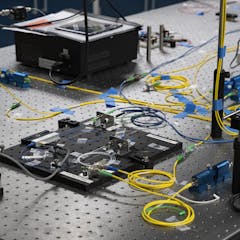
Nobel-winning quantum weirdness undergirds an emerging high-tech industry, promising better ways of encrypting communications and imaging your body
Nicholas Peters , University of Tennessee

This Australian experiment is on the hunt for an elusive particle that could help unlock the mystery of dark matter
Ben McAllister , The University of Western Australia

Quantum physics offers insights about leadership in the 21st century
Randall Carolissen , University of Johannesburg

Quantum entanglement: what it is, and why physicists want to harness it
Nicholas Bornman , University of the Witwatersrand

Is space infinite? We asked 5 experts
Noor Gillani , The Conversation

Can consciousness be explained by quantum physics? My research takes us a step closer to finding out
Cristiane de Morais Smith , Utrecht University

Curious Kids: is light a wave or a particle?
Sam Baron , Australian Catholic University

Can the laws of physics disprove God?
Monica Grady , The Open University

New postage stamp honors Chien-Shiung Wu, trailblazing nuclear physicist
Xuejian Wu , Rutgers University - Newark

Could Schrödinger’s cat exist in real life? Our research may provide the answer
Stefan Forstner , The University of Queensland

Our quantum internet breakthrough could help make hacking a thing of the past
Siddarth Koduru Joshi , University of Bristol

What Buddhism and science can teach each other – and us – about the universe
Chris Impey , University of Arizona
Related Topics
- Particle physics
- Quantum computing
- Quantum entanglement
- Quantum mechanics
- Quantum technologies
- Quantum theory
Top contributors
Director, Centre for Quantum Dynamics, Griffith University
Professor of Quantum Physics and Quantum Technology, University of Sydney
Associate Professor, Philosophy of Science, The University of Melbourne
Professor of Electrical and Computer Engineering, Oklahoma State University
Professor in Physics, Griffith University
Associate Professor, Griffith University

University of Adelaide
Professor, The University of Queensland
Post Doctoral Research Associate, Centre for the Subatomic Structure of Matter, University of Adelaide
Professor of Physics, Centre for Quantum Dynamics, Griffith University
PhD student, Theoretical Condensed Matter Physics, The University of Melbourne
Emeritus Professor of Cosmology and Astrophysics, University of Cambridge
Senior Curator (Astronomy), Museums Victoria and Honorary Fellow at University of Melbourne, Museums Victoria Research Institute
Professor of Planetary and Space Sciences, The Open University
ARC Laureate Fellow, Swinburne University of Technology
- X (Twitter)
- Unfollow topic Follow topic
share this!
March 19, 2024
This article has been reviewed according to Science X's editorial process and policies . Editors have highlighted the following attributes while ensuring the content's credibility:
fact-checked
trusted source
Research team establishes synthetic dimension dynamics to manipulate light
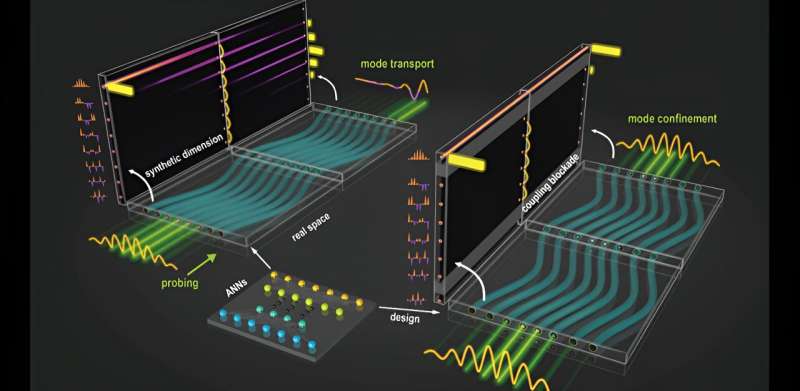
In the realm of physics, synthetic dimensions (SDs) have emerged as one of the frontiers of active research, offering a pathway to explore phenomena in higher-dimensional spaces, beyond our conventional 3D geometrical space. The concept has garnered significant attention, especially in topological photonics, due to its potential to unlock rich physics inaccessible in traditional dimensions.
Researchers have proposed various theoretical frameworks to study and implement SDs, aiming at harnessing phenomena like synthetic gauge fields, quantum Hall physics, discrete solitons, and topological phase transitions in four dimensions or higher. Those proposals could lead to new fundamental understandings in physics.
One of the primary challenges in conventional 3D space is the experimental realization of complex lattice structures with specific couplings. SDs offer a solution, by providing a more accessible platform for creating intricate networks of resonators with anisotropic, long-range, or dissipative couplings. This capability has already led to groundbreaking demonstrations of non-Hermitian topological winding, parity-time symmetry, and other phenomena.
A variety of parameters or degrees of freedom within a system, such as frequency modes, spatial modes, and orbital angular momenta, can be used to construct SDs, promising for applications in diverse fields ranging from optical communications to topological insulator lasers.
A key goal in this field is the construction of a "utopian" network of resonators where any pair of modes can be coupled in a controlled manner. Achieving this goal necessitates precise mode manipulation within photonic systems, offering avenues for enhancing data transmission, energy harvesting efficiency, and laser array radiance.
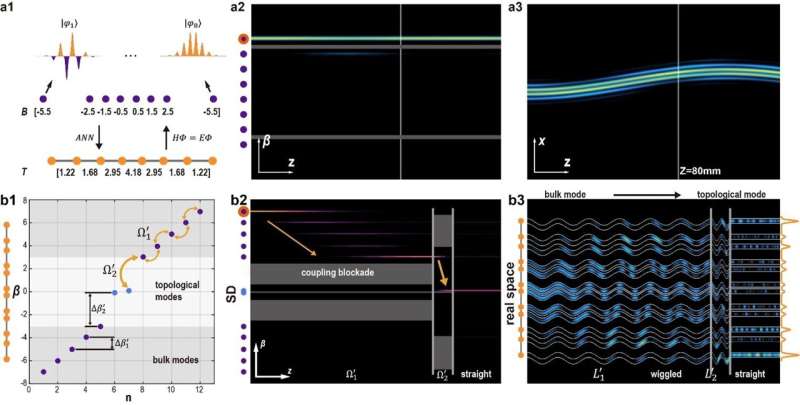
Now, as reported in Advanced Photonics , an international team of researchers has created customizable arrays of waveguides to establish synthetic modal dimensions. This advance allows for effective control of light in a photonic system, without the need for complicated extra features like nonlinearity or non-Hermiticity.
Professor Zhigang Chen of Nankai University notes, "The ability to adjust different modes of light within the system brings us a step closer to achieving 'utopian' networks, where all parameters of an experiment are perfectly controllable."
In their work, the researchers modulate perturbations ("wiggling frequencies") for propagations that match the differences between different modes of light. To do so, they employ artificial neural networks (ANNs) to design waveguide arrays in real space. The ANNs are trained to create waveguide setups that have exactly the desired mode patterns. These tests help reveal how light propagates and gets confined within the arrays.
Finally, the researchers demonstrate the use of ANNs to design a special type of photonic lattice structure called a Su-Schrieffer-Heeger (SSH) lattice. This lattice has a specific feature enabling topological control of light throughout the system. This allows them to change the bulk mode in which light travels, showcasing the unique properties of their synthetic dimensions.
The implication of this work is substantial. By fine-tuning waveguide distances and frequencies, the researchers aim to optimize the design and fabrication of integrated photonic devices.
Professor Hrvoje Buljan of University of Zagreb says, "Beyond photonics, this work offers a glimpse into geometrically inaccessible physics. It holds promise for applications ranging from mode lasing to quantum optics and data transmission ."
Both Chen and Buljan note that the interplay of topological photonics and synthetic dimension photonics empowered by ANNs opens new possibilities for discoveries that may lead to unprecedented materials and device applications.
Provided by SPIE
Explore further
Feedback to editors

New archive of ancient human brains challenges misconceptions of soft tissue preservation
3 hours ago

Study reveals 'cozy domesticity' of prehistoric stilt-house dwellers in England's ancient marshland

Study finds large accumulations of plastics in the ocean, even outside so-called garbage patch
6 hours ago

Researchers investigate how freshwater diatoms stay in the light

NASA study: Asteroid's orbit, shape changed after DART impact

Nanoparticles target multiple COVID variants through the twist in the spike protein
7 hours ago

Researchers use an edible blue-green algae to protect honey bees against viruses
9 hours ago

Astrophysicist's research could provide a hint in the search for dark matter

Sandy soil reptiles are more threatened by climate change than has been supposed, study shows

Researchers uncover culprits behind pitting corrosion in 3D-printed stainless steel
Relevant physicsforums posts, was thomas young wrong.
Mar 13, 2024
Horizon and Curvature Observations
Laser and nano-holes experiment, measure the transmission curve and wavelengths of colored mineral glass.
Mar 11, 2024
How to build a simple polarization filter
Mar 5, 2024
Light beams and their reflection
Mar 3, 2024
More from Optics
Related Stories

Fractal photonic anomalous Floquet topological insulators to generate multiple quantum chiral edge states
Dec 7, 2023

Chiral transmission by an open evolution trajectory in a non-Hermitian system
Mar 15, 2024

Extraction of topological invariants from band structure in the synthetic frequency dimension
Mar 31, 2023

Synthetic dimensions enable a new way to construct higher-order topological insulators
Jul 21, 2020

Dynamic ring resonator offers new opportunity in synthetic frequency dimension
Jun 21, 2022

Dual-polarization two-dimensional valley photonic crystals
Sep 2, 2022
Recommended for you

Continuous non-invasive glucose sensing on the horizon with the development of a new optical sensor
13 hours ago

Spectroscopy and theory shed light on excitons in semiconductors
12 hours ago

A method to accurately center quantum dots within photonic chips
14 hours ago

2D optoelectronic neuron array achieves broadband and low-loss optical nonlinearity accessible with ambient light

Projection mapping leaves the darkness behind
Mar 18, 2024

Holographic message encoded in simple plastic
Let us know if there is a problem with our content.
Use this form if you have come across a typo, inaccuracy or would like to send an edit request for the content on this page. For general inquiries, please use our contact form . For general feedback, use the public comments section below (please adhere to guidelines ).
Please select the most appropriate category to facilitate processing of your request
Thank you for taking time to provide your feedback to the editors.
Your feedback is important to us. However, we do not guarantee individual replies due to the high volume of messages.
E-mail the story
Your email address is used only to let the recipient know who sent the email. Neither your address nor the recipient's address will be used for any other purpose. The information you enter will appear in your e-mail message and is not retained by Phys.org in any form.
Newsletter sign up
Get weekly and/or daily updates delivered to your inbox. You can unsubscribe at any time and we'll never share your details to third parties.
More information Privacy policy
Donate and enjoy an ad-free experience
We keep our content available to everyone. Consider supporting Science X's mission by getting a premium account.
E-mail newsletter
416 Physics Topics & Ideas to Research
18 January 2024
last updated
Physics topics may include the complex systems of the universe, from the smallest particles to colossal galaxies. This field of study examines fundamental concepts, such as force, energy, and matter, extrapolating them into areas like quantum or relative mechanics. It also explores thermodynamics, revealing the intriguing principles behind heat, work, and energy conversions. Some themes may vary from the mysteries of dark matter and energy in cosmology to the resonating string theories in theoretical physics. Moreover, the world of semiconductors in solid-state physics presents a spectrum of interconnected topics. In turn, the essential laws of physics provide the basis for almost all scientific research, offering profound insights into the natural world and shaping human understanding of how everything in the universe behaves and interacts.
Cool Physics Topics
- Quantum Entanglement and Its Potential Applications
- Harnessing Solar Energy: Next-Generation Photovoltaic Cells
- Plasma Physics and Controlled Fusion Energy
- The Role of Physics in Climate Change Models
- Dark Matter and Dark Energy: Unveiling the Universe’s Mysteries
- Astrophysics: Formation and Evolution of Black Holes
- Implications of Superconductivity in Modern Technology
- Roles of Biophysics in Understanding Cellular Mechanisms
- Theoretical Physics: The Quest for Quantum Gravity
- Nanotechnology: Manipulating Matter at the Atomic Scale
- Cosmic Microwave Background Radiation and the Big Bang Theory
- The Uncertainty Principle and Its Philosophical Consequences
- Exploring Exoplanets: Physics Beyond Our Solar System
- Advances in Optics: From Microscopy to Telecommunications
- Gravitational Waves: Probing the Fabric of Spacetime
- Neutrino Physics: Studying the Universe’s Ghost Particles
- Entropy and Time’s Arrow: Understanding Thermodynamics
- Applications of Particle Physics in Medicine
- Physics of Semiconductors and the Evolution of Computing
- Exploring String Theory and Multidimensional Realities
- Relativity Theory: Spacetime Curvature and Gravitational Lenses
- Quantum Computing: Bridging Physics and Information Technology
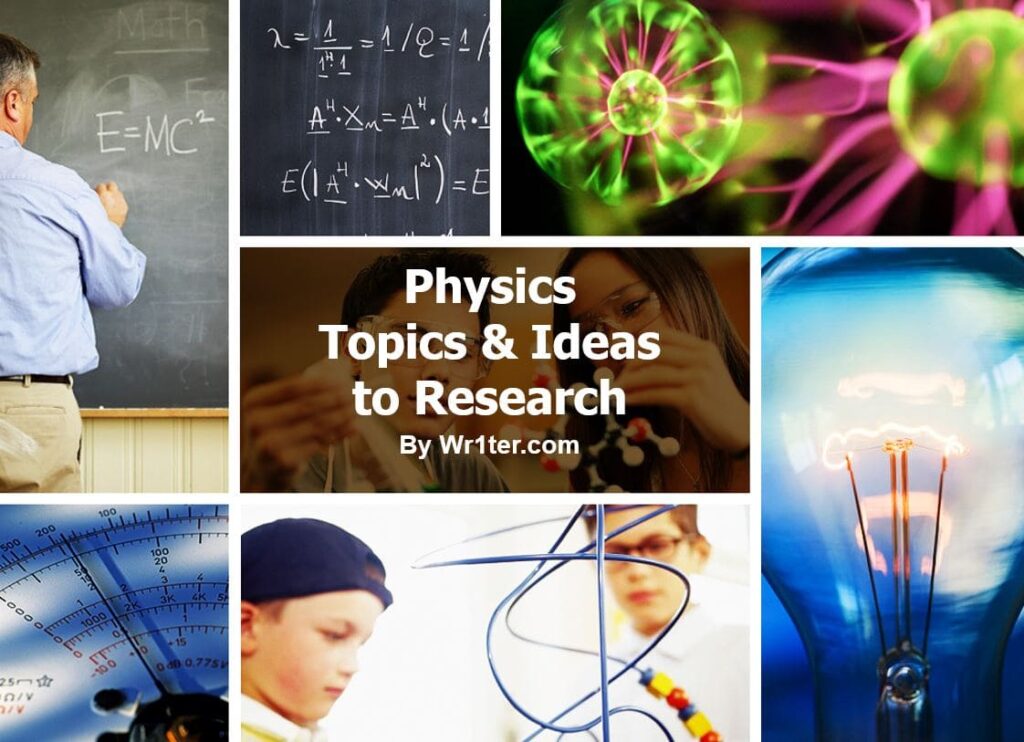
Easy Physics Topics
- Antimatter: Understanding its Properties and Possible Uses
- Physics of Chaos and Nonlinear Dynamical Systems
- Condensed Matter Physics: Unveiling the Behavior of Phases of Matter
- Science of Acoustics: Understanding Sound Phenomena
- Roles of Physics in Developing Advanced Materials
- Synchrotron Radiation: Tools and Techniques in Research
- Particle Accelerators: Probing the Quantum World
- Theoretical Predictions and Experimental Tests in Quantum Mechanics
- Nuclear Fusion: The Physics of a Star’s Energy Production
- The Holographic Principle: A Revolution in Quantum Physics?
- Biomechanics: Understanding the Physics of Life Movements
- Exploring the Physics of Supermassive Black Holes
- Magnetism: From Quantum Spin to Industrial Applications
- Laser Physics: Principles and Cutting-Edge Applications
- Advances in Cryogenics and Low-Temperature Physics
- The Physics of Flight: From Birds to Airplanes
- Quantum Field Theory and the Nature of Reality
- Modern Cosmology: Inflation and the Cosmic Structure
- Probing Subatomic Particles in High-Energy Physics
- Physics of Fluid Dynamics: From Blood Flow to Weather Systems
- The Grand Unified Theory: Bridging Fundamental Forces
- Quantum Cryptography: Ensuring Information Security
- Photonic Crystals and Their Applications in Telecommunication
Physics Research Paper Topics for High School
- Exploring the Mysteries of Dark Matter and Dark Energy
- Quantum Entanglement: Unraveling the Enigma
- Nanotechnology: The Physics of the Incredibly Small
- Black Holes: Understanding Gravity’s Ultimate Victory
- Time Travel: Exploring its Possibility in Physics
- Particle Physics: A Closer Look at the Higgs Boson
- Waves and Resonance: The Science Behind Vibrations
- Antimatter: The Mirror Image of Normal Matter
- Superconductivity: Exploring the Role of Temperature
- Effects of Nuclear Physics on Medical Imaging Technology
- The Theory of Everything: Unifying the Fundamental Forces
- Superstring Theory: The Quest for Unification
- Chaos Theory: A Journey Through Nonlinear Dynamics
- Radioactivity: The Science Behind Nuclear Decay
- Examining the Physical Properties of Non-Newtonian Fluids
- Magnetic Monopoles: A Missing Piece in Electromagnetism?
- Quantum Field Theory: The World of Subatomic Particles
- Physics of Climate Change: Understanding Global Warming
- Thermodynamics: The Science of Heat and Energy Transfers
Physics Research Paper Topics for College Students
- Unveiling the Mysteries of Quantum Entanglement
- Implications of Zero-Point Energy: A Look Into Vacuum Fluctuations
- Examining the Principles and Potential of Nuclear Fusion
- Harnessing Antimatter: Theoretical Approaches and Practical Limitations
- Tracing Cosmic Rays: Sources, Propagation, and Interaction with Matter
- Advanced Gravitational Waves: Detection and Significance
- Rethinking Dark Matter: Contemporary Views and Hypotheses
- Probing Planetary Physics: Dynamics in Our Solar System
- Exploring the Physics of Black Holes: Beyond the Event Horizon
- Thermodynamics in Nanoscale Systems: Deviations From Classical Rules
- Computational Physics: The Impact of Machine Learning on Physical Research
- Spintronics: Revolutionizing Information Technology
- Accelerators in Medicine: Using Particle Physics for Cancer Treatment
- The Influence of Physics on Climate Change Modeling
- Neutrino Oscillations: Exploring the Ghost Particles
- Quantum Computing: Bridging the Gap Between Physics and Information Technology
- Dark Energy and the Accelerating Universe: Current Understanding
- Gauge Theories in Particle Physics: A Deep Dive
- The Holographic Principle: The Universe as a Hologram
- The Role of Physics in Renewable Energy Technologies
- Time Travel Theories: Fact or Fiction?
- Implications of String Theory in Modern Physics
Physics Research Paper Topics for University
- Metamaterials: Creating the Impossible in Optics and Acoustics
- Fluid Dynamics in Astrophysics: Stars, Galaxies, and Beyond
- Tackling Turbulence: The Last Great Problem in Classical Physics
- The Casimir Effect: Unearthing Quantum Force in the Vacuum
- Superconductivity: New Frontiers and Applications
- Advances in Biophysics: Cellular Mechanisms to Organismal Systems
- The Physics of Spacecraft Propulsion: Ion Drives and Beyond
- Supersymmetry: The Unfulfilled Promise of the Universe
- Relativity and GPS: The Unseen Influence of Physics in Everyday Life
- Topological Insulators: Quantum Phenomena in Solid State Physics
- The Future of Photonics: Powering the Next Generation of Technology
- Atomic Clocks: The Intersection of Quantum Mechanics and Relativity
- Quantum Field Theory: A Modern Understanding
- Electromagnetism in Biological Systems: Understanding Bioelectricity
- The Kardashev Scale: A Framework for Advanced Civilizations
- Harnessing the Sun: The Physics of Solar Energy
- M-Theory: The Unifying Theory of Everything
- Bell’s Theorem: Debunking Local Realism
- Quantum Cryptography: Security in the Age of Quantum Computers
- Geophysics: Understanding the Earth’s Core and Plate Tectonics
Physics Research Paper Topics for Master’s & Ph.D.
- Quantum Entanglement: Unraveling the Spooky Action at a Distance
- Harnessing Fusion Power: Prospects for Unlimited Clean Energy
- Gravitational Waves: Detecting Ripples in Spacetime
- The Nature of Black Holes and Singularities
- Time Dilation and Its Applications in Modern Physics
- Investigating the Particle-Wave Duality: A Deeper Look Into Quantum Mechanics
- The Physics of Superconductors: Transitioning From Theory to Practical Applications
- Hawking Radiation: From Theory to Possible Observations
- Evolution of the Universe: A Closer Look at the Big Bang Theory
- Exploring the Higgs Field: Implications for Particle Physics
- Nanotechnology in Physics: The Promising Path Toward the Future
- String Theory and the Quest for a Theory of Everything
- The Role of Physics in Climate Change Modelling
- Understanding Neutrinos: Ghost Particles of the Universe
- The Fundamentals of Chaos Theory: Applications in Modern Physics
- Quantum Computing: Breaking Down the Physics Behind the Future of Computation
- Exploring The Fourth Dimension: A Journey Beyond Time
- Astrophysics and the Study of Exoplanets: Seeking Alien Life
- Quantum Field Theory: Bridging Quantum Mechanics and Special Relativity
- Understanding Quantum Tunneling: Applications and Implications
- Study of Quarks: Subatomic Particles and the Strong Force
- Biophysics and the Mechanics of Cellular Structures
- Magnetic Monopoles: Hunting for the Missing Entities in Quantum Theory
Physics Research Topics on Classical Mechanics
- Understanding Kepler’s Laws and Their Practical Applications
- The Role of Energy Conservation in Mechanical Systems
- Implications of Newton’s Third Law on Engineering Designs
- Exploring Oscillatory Motion: Springs and Pendulums
- Effects of Friction Forces on Everyday Objects
- Stability of Rotational Systems in Aerospace Engineering
- Interpreting Physical Phenomena Using Vector Mechanics
- Influence of Classical Mechanics on Modern Architecture
- Application of Momentum Conservation in Collision Analysis
- Kinematics of Complex Systems: An In-Depth Study
- Elasticity and Its Impact on Material Science
- Newtonian Physics in Contemporary Game Design
- The Art of Fluid Dynamics: Concepts and Applications
- Gyroscopes and Their Applications in Modern Technologies
- Applications of Torque in Mechanical Engineering
- Relevance of Angular Momentum in Astrophysics
- The Science Behind Musical Instruments: A Mechanical Perspective
- Diving Into the Parallels Between Classical and Quantum Mechanics
- Exploring Parabolic Trajectories in Projectile Motion
- Dynamics of Multi-Body Systems in Space Exploration
Research Topics for Physics of Materials
- Analysis of Quantum Behavior in Superconductors
- Predictive Modelling of Phase Transitions in Crystalline Structures
- Examination of Electron Mobility in Semi-Conductive Materials
- Study of High-Temperature Superconductivity Phenomena
- Mechanical Properties of Novel Metallic Alloys
- Graphene: Exploring its Remarkable Electronic Properties
- Optimization of Energy Storage in Advanced Battery Materials
- Ferroelectric Materials: Unraveling their Unique Electrical Properties
- Assessing Durability of Construction Materials Under Environmental Stressors
- Properties and Potential Applications of Topological Insulators
- Investigation into Multiferroic Materials: Challenges and Opportunities
- Dynamic Response of Materials under High-Strain Rates
- Nanomaterials: Understanding Size-Dependent Physical Properties
- Harnessing Thermoelectric Materials for Energy Conversion
- Photonic Crystals: Manipulation of Light Propagation
- Exploring Amorphous Solids: From Metallic Glasses to Plastics
- Investigations into Magnetocaloric Materials for Eco-Friendly Refrigeration
- Neutron Scattering in the Study of Magnetic Materials
- Probing the Anisotropic Nature of Composite Materials
- Characterization of Disordered Materials Using Spectroscopic Techniques
- Roles of Surface Physics in Material Science
Physics Research Topics on Electrical Engineering
- Influence of Artificial Intelligence on Modern Power Systems
- Radio Frequency Identification (RFID): Advancements and Challenges
- Improving Transmission Efficiency Through Smart Grids
- Developments in Electric Vehicle Charging Infrastructure
- Optical Fiber Technology: The Future of Communication
- Interplay between Solar Power Engineering and Material Science
- Harnessing the Potential of Superconductors in Electrical Engineering
- Li-Fi Technology: Lighting the Way for Data Communication
- Innovations in Energy Storage: Beyond Lithium-Ion Batteries
- Designing Efficient Power Electronics for Aerospace Applications
- Exploring the Boundaries of Microelectronics With Quantum Dots
- Robotic Automation: Electrical Engineering Perspectives
- Power System Stability in the Era of Distributed Generation
- Photovoltaic Cells: Advances in Efficiency and Cost-Effectiveness
- Investigating the Feasibility of Wireless Power Transfer
- Unmanned Aerial Vehicles (UAVs): Power Management and Energy Efficiency
- Quantum Entanglement: Implications for Information Transmission
- Fuel Cells: Exploring New Frontiers in Electrical Power Generation
- Machine Learning Applications in Predictive Maintenance of Electrical Systems
- Neural Networks and their Role in Electrical Circuit Analysis

Optical Physics Research Topics
- Exploring Quantum Optics: Unveiling the Peculiarities of Light-Particle Interactions
- Harnessing the Power of Nonlinear Optics: Potential Applications and Challenges
- Fiber Optic Technology: Influencing Data Transmission and Telecommunication
- The Role of Optics in Modern Telescopic Innovations: An Analytical Study
- Polarization of Light: Understanding the Physical and Biological Applications
- Unfolding the Mystery of Optical Tweezers: Manipulation and Measurement at the Microscale
- Lasing Mechanisms: Insights Into the Evolution and Operation of Lasers
- Waveguides and Their Crucial Role in Integrated Optics: A Comprehensive Study
- Optical Illusions: Revealing the Underlying Physics and Perception Aspects
- Biophotonics: The Intersection of Optics and Biomedicine
- Exploiting Optical Metamaterials: The Pathway to Invisible Cloaking Devices
- Optical Holography: Unearthing the Potential for 3D Visualization and Display Systems
- Investigation of Optical Solitons: Nonlinear Pulses in Fiber Optic Communications
- Plasmonics: Harnessing Light With Nanostructures for Enhanced Optical Phenomena
- Advances in Spectroscopy: Optical Techniques for Material Analysis
- The Physics behind Optical Coherence Tomography in Medical Imaging
- Optical Vortices and Their Role in High-Capacity Data Transmission
- Ultrafast Optics: Time-Resolved Studies and Femtosecond Laser Applications
- In-Depth Review of Optical Trapping and Its Potential in Nanotechnology
- Optical Parametric Oscillators: Applications in Spectroscopy and Laser Technology
- Theoretical Perspectives on Photonic Crystals and Band Gap Engineering
Physics Research Topics on Acoustics
- Exploration of Ultrasonic Waves in Medical Imaging and Diagnostics
- Propagation of Sound in Various Atmospheric Conditions
- Impacts of Acoustics on Architectural Design Principles
- Innovative Approaches to Noise Cancellation Technologies
- The Role of Acoustics in Underwater Communication Systems
- Sonic Boom Phenomena: Causes and Effects
- Effects of Acoustic Resonance in Musical Instruments
- Influence of Material Properties on Sound Absorption
- Harnessing the Power of Sound: Acoustic Levitation Research
- Relationship Between Acoustic Ecology and Urban Development
- Evaluating the Principles of Acoustic Metamaterials
- Acoustic Thermometry: Precision in Temperature Measurement
- Potential Applications of Phononic Crystals in Acoustics
- Deciphering Dolphin Communication: Bioacoustics in Marine Life
- Development and Improvement of Acoustic Emission Techniques
- Thermoacoustic Engines and Refrigeration: An Emerging Technology
- Investigating the Psychoacoustic Properties of Sound
- Impacts of Acoustic Treatment in Home Theatres and Studios
- Evaluating the Effectiveness of Sonar Systems in Submarine Detection
- Ultrasound Applications in Non-Destructive Testing and Evaluation
Physics Research Topics on Thermodynamics
- Investigating the Role of Thermodynamics in Nanotechnology Development
- Entropy Production: A Deep Dive into Non-Equilibrium Thermodynamics
- Impacts of Thermodynamics on Energy Conservation Practices
- Quantum Thermodynamics: Bridging Quantum Mechanics and Traditional Thermodynamics
- Advanced Materials in Heat Engines: A Thermodynamic Perspective
- Applications of Thermodynamics in Renewable Energy Technology
- Exploring Thermodynamic Limits of Computation: Theoretical and Practical Aspects
- Unveiling the Mysteries of Black Hole Thermodynamics
- Influence of Thermodynamics in Climate Change Modelling
- Exploiting Thermodynamics for Efficient Spacecraft Heat Management
- Understanding Biological Systems Through the Lens of Thermodynamics
- Applying Thermodynamics to Predict Geophysical Phenomena
- Thermodynamics in Food Processing: Effects on Nutrient Preservation
- Biogeochemical Cycles: An Insight From Thermodynamics
- Roles of Thermodynamics in Understanding Supernova Explosions
- Thermodynamics in Modern Architecture: Energy-Efficient Building Designs
- Thermoelectric Materials: Harnessing Thermodynamics for Power Generation
- Roles of Thermodynamics in Efficient Resource Recovery From Waste
- Thermodynamics and Its Implications in the Formation of Stars
- Exploring Thermodynamics in Quantum Information Theory
Particle Physics Research Topics
- Unraveling the Mysteries of Quark Structures in Baryonic Matter
- The Enigma of Neutrino Oscillations: New Discoveries
- String Theory Applications in Particle Physics: A New Horizon
- Dark Matter Particles: Unseen Influences on Cosmic Structures
- The Higgs Field and Its Implications for the Standard Model
- Lepton Family: A Comprehensive Study of Their Unique Properties
- Quantum Chromodynamics: Decoding the Strong Force
- The Role of W and Z Bosons in Electroweak Interactions
- Antiparticle Behavior and Its Ramifications for Symmetry
- Detecting Supersymmetry: A Paradigm Shift in Particle Physics?
- Insights Into Graviton: Hunting the Quantum of Gravity
- Probing the Exotic: Search for Hypothetical Particles
- Flavor Changing Processes in the Quark Sector: An Analytical Approach
- Precision Measurements of the Top Quark: A Key to New Physics
- Pentaquark Particles: A Fresh Perspective on Hadronic Matter
- Examining the Asymmetry Between Matter and Antimatter
- Gluons and Confinement: Probing the Fabric of Quantum Chromodynamics
- Proton Decay: GUTs, Supersymmetry, and Beyond
- Unveiling the Secrets of Cosmic Ray Particles
- Meson Spectroscopy: Understanding Hadrons Better
- Scalar Fields and Inflation: A Quantum Field Theory Perspective
Statistical Physics Research Topics
- Exploring the Second Law of Thermodynamics in Cosmic Evolution
- Investigating the Role of Entropy in the Black Hole Information Paradox
- Understanding Statistical Mechanics in Biophysical Systems
- Analyzing Temperature’s Impact on Quantum Spin Chains
- Diving Into Phase Transitions in Quantum Fields
- Quantum Fluctuations and Their Statistical Significance
- Applications of Statistical Physics in Neural Networks
- Investigating the Universality Classes in Critical Phenomena
- Revealing the Role of Statistical Physics in Ecosystem Dynamics
- Fluctuation Theorems: A Study of Non-Equilibrium Systems
- Statistical Physics’ Approach to Understanding Traffic Flow Dynamics
- Non-Equilibrium Statistical Mechanics in Living Systems
- Deciphering the Puzzle of Quantum Entanglement Using Statistical Methods
- Research on Spin Glasses and Disorder in Statistical Physics
- Thermodynamics in Small Systems: A Statistical Physics Approach
- Fractal Analysis: Its Impact on Statistical Physics
- Harnessing the Power of Statistical Physics for Climate Modeling
- Introducing Quantum Field Theory to Statistical Physics Studies
- Investigating Energy Landscapes in Protein Folding
- Simulating Turbulence Using Concepts of Statistical Physics
Atomic Physics Research Topics
- Quantum Entanglement and Its Impact on Information Transfer
- Exploring the Properties of Exotic Atoms
- Manipulating Matter: The Potential of Cold Atoms
- Unveiling the Secrets of Quantum Decoherence
- Probing Quantum Tunneling: From Theory to Practical Applications
- Atomic Collisions and Their Consequences in Astrophysics
- Advancements in Atomic Clock Technology and Precision Timekeeping
- Harnessing the Power of Quantum Computing With Atomic Physics
- Advancements in Atom Interferometry and Precision Measurements
- Evaluating the Influence of Atomic Physics on Biological Systems
- Atomic Physics Applications in Emerging Technologies
- Unlocking the Mysteries of Atomic Spectroscopy
- Delving into the World of Ultracold Atoms and Bose-Einstein Condensates
- The Role of Atomic Physics in Climate Change Studies
- Shedding Light on Dark Matter: Atomic Physics Approaches
- Innovations in Controlled Nuclear Fusion Through Atomic Physics
- Electron Capture and Beta Decay: The Intricacies of Weak Force
- Quantum Magnetism and Its Influence on Atomic Structures
- Theoretical Frameworks for Describing Atomic Structure and Behavior
- The Future of Nanotechnology: Role of Atomic Physics
- Understanding Atomic Physics Role in Quantum Cryptography
- Fundamental Symmetries: Atomic Physics Perspectives and Tests
Physics Research Topics on Quantum Mechanics
- Investigating the Quantum Behavior of Superconducting Circuits
- Exploring the Applications of Quantum Entanglement in Communication Systems
- Analyzing the Role of Quantum Mechanics in Biological Systems
- Developing Quantum Algorithms for Solving Complex Optimization Problems
- Understanding Quantum Tunneling in Nanostructures
- Investigating Quantum Coherence in Macroscopic Systems
- Exploring the Role of Quantum Mechanics in Quantum Computing
- Analyzing the Quantum Properties of Photons in Quantum Information Processing
- Developing Quantum Sensors for High-Precision Measurements
- Investigating the Quantum Mechanics of Quantum Dots in Optoelectronic Devices
- Analyzing the Quantum Mechanics of Spintronics for Information Storage and Processing
- Exploring the Role of Quantum Mechanics in Quantum Cryptography
- Investigating the Quantum Properties of Bose-Einstein Condensates
- Developing Quantum Simulators for Studying Complex Quantum Systems
- Analyzing the Quantum Mechanics of Topological Insulators
- Exploring Quantum Chaos and its Applications in Quantum Mechanics
- Investigating the Quantum Mechanics of the Quantum Hall Effect
- Analyzing the Quantum Properties of Quantum Gravity
- Exploring the Role of Quantum Mechanics in Quantum Sensing and Metrology
- Investigating the Quantum Mechanics of Quantum Optics
Nuclear Physics Research Topics
- Quantum Tunneling in Nuclear Reactions
- Neutron Stars: Structure and Properties
- Nuclear Fusion as a Clean Energy Source
- Investigating the Role of Mesons in Nuclear Forces
- Nuclear Shell Model: Understanding Nucleus Stability
- Proton-Proton Collisions in High-Energy Physics
- Nuclear Fission: Mechanisms and Applications
- Theoretical Analysis of Nuclear Decay Processes
- Particle Accelerators for Nuclear Physics Research
- The Quark-Gluon Plasma: Experimental Studies
- Superheavy Elements and Their Synthesis
- Nuclear Magnetic Resonance Spectroscopy in Materials Science
- Neutrino Oscillations and Mass Hierarchy
- Isotope Separation Techniques for Medical and Industrial Applications
- Exotic Nuclear Shapes: Triaxial and Hyperdeformed Nuclei
- Nuclear Data Evaluation and Uncertainty Analysis
- Studying Nuclear Reactions in Supernovae
- Exploring Nuclear Isomerism for Quantum Computing
- Nuclear Waste Management and Disposal Strategies
- Giant Resonances in Nuclear Physics
Physical Geography Topics to Write About
- Solar Radiation’s Impact on Geographical Landform Evolution
- Oceanic Currents and Their Role in Coastal Erosion
- Atmospheric Pressure Interactions and Mountain Formation
- Tectonic Plate Movements’ Influence on Geographical Features
- Gravity’s Contribution to Geographical Landscape Formation
- Climate Change Effects on Glacial Retreat and Polar Geography
- Wind Patterns and Dune Formation in Deserts
- River Networks’ Dynamics and Fluvial Geomorphology
- Volcanic Activity and Island Formation
- Magnetic Fields and Geomagnetic Reversals in Paleomagnetism
- Earthquakes’ Impact on Geographical Landforms and Seismic Hazards
- Rainfall Patterns and Soil Erosion in Agricultural Landscapes
- Geothermal Energy’s Role in Hydrothermal Features
- Tsunamis’ Effects on Coastal Landforms and Human Settlements
- Earth’s Magnetic Field and the Auroras
- Eolian Processes and Desertification in Arid Landscapes
- Gravity Waves’ Influence on Atmospheric Circulation and Climate Patterns
- River Diversions and Delta Formation
- Climate Change and Coral Reef Degradation
- Ice Sheets’ Dynamics and Sea Level Rise
- Karst Processes and Cave Formation
Astrophysics Topics for a Research Paper
- Quantum Effects in Stellar Evolution
- Gravitational Waves From Binary Neutron Star Mergers
- Cosmic Microwave Background Anisotropy Analysis
- Supernova Nucleosynthesis and Element Formation
- Dark Matter Distribution in Galaxy Clusters
- Magnetic Fields in Protostellar Disks
- Exoplanet Atmospheres and Habitability
- Black Hole Dynamics in Galactic Centers
- High-Energy Particle Acceleration in Active Galactic Nuclei
- Gamma-Ray Burst Progenitor Identification
- Interstellar Medium Turbulence and Star Formation
- Neutrino Oscillations in Supernova Explosions
- Cosmic Ray Propagation in the Galactic Magnetic Field
- Stellar Populations and Galactic Archaeology
- Stellar Pulsations and Variable Stars in Globular Clusters
- Dusty Torus Structure in Active Galactic Nuclei
- Planetary Formation in Binary Star Systems
- Primordial Magnetic Fields and Early Universe Magnetogenesis
- Neutron Star Equation of State Constraints from Pulsar Timing
- Galactic Chemical Evolution and Metal Enrichment
Theoretical Physics Topics to Research
- Quantum Entanglement in Multi-Particle Systems
- Gravitational Waves and Black Hole Mergers
- Emergent Phenomena in Condensed Matter Physics
- Nonlinear Dynamics and Chaos in Physical Systems
- Symmetry Breaking and Phase Transitions
- Topological Insulators and Their Applications
- Quantum Computing and Information Theory
- Cosmological Inflation and the Early Universe
- Quantum Field Theory and Particle Interactions
- Time Reversal Symmetry in Quantum Mechanics
- Black Hole Thermodynamics and Hawking Radiation
- Quantum Simulation and Quantum Many-Body Systems
- Dark Matter and Its Detectability
- Superconductivity and Superfluidity
- Information-Theoretic Approaches to Quantum Gravity
- Magnetic Monopoles and Their Role in Particle Physics
- High-Energy Physics and Collider Experiments
- Quantum Hall Effect and Topological Order
- Quantum Optics and Quantum Information Processing
- Neutrino Physics and Neutrino Oscillations
- Fractals and Self-Similarity in Physical Systems
To Learn More, Read Relevant Articles
801 chemistry research topics & interesting ideas, 484 sports research topics & good ideas.
- Undergraduate Programs
- Graduate Programs
- Concentrations
- Extracurricular Opportunities
Research Topics
- Research Groups
- Academic Leadership
- Graduate Students
- Administrative Staff
- Alumni Press Releases
- Get Involved
- Giving Opportunities
- Newsletters
- Recruit Students
- Academic Support
- Community Outreach
- Experience and Employment
- Mental Health Resources
- Student Organizations
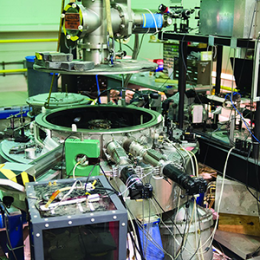
Astrophysics, Fusion and Plasma Physics
Cornell’s research programs in planetary astronomy, infrared astronomy, theoretical astrophysics, and radio astronomy are internationally recognized. Plasma physics is the science of electrically conducting fluids and high-temperature ionized gases. While the best-known research impetus is controlled fusion as a potential source of electric power, plasma physics also underlies many solar, astrophysical, and ionospheric phenomena as well as industrial applications of plasmas.

Nanoscience and Nanotechnology
Nanoscience, the behavior of physical systems when confined to near atomic, nanoscale (
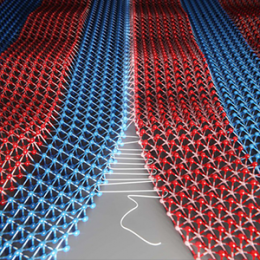
Condensed Matter and Materials Physics
Research topics in this diverse area range from innovative studies of the basic properties of condensed-matter systems to the nanofabrication and study of advanced electronic, optoelectronic, spintronic, and quantum-superconductor devices.
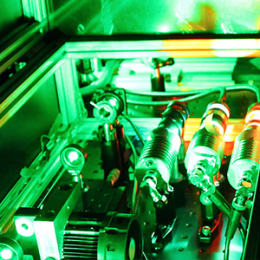
Energy Systems
The need for future renewable sources of energy and ways to minimize consumption is leading to a growing emphasis on new concepts for the generation, storage, and transportation of energy. Cornell faculty are involved in developing a wide range of energy-related materials, such as photovoltaic materials, thermoelectrics, advanced battery materials and catalysts, membranes and supports for mobile fuel cells. Research is also conducted on materials processing that minimizes environmental impact.

Biophysics is a broad field, ranging from fundamental studies of macromolecules or cells, through the design of state of the art diagnostic or medical tools. A number of AEP research groups are pushing the limits in biophysical studies by developing instruments that provide new insight into the physics that drives biological processes or developing new methods for manipulating biomolecules for biotechnological or biomedical applications.
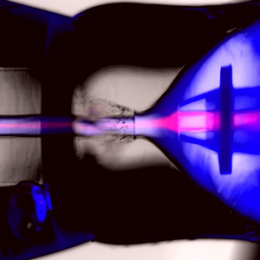
Microfluidics and Microsystems
Researchers in this field use their knowledge of microfluidics to create microsystems useful both in research and real-world applications in a variety of fields, including chemistry, biology, agriculture, and biomedical engineering.
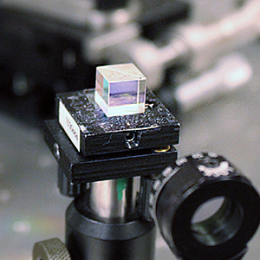
Optical Physics
Photonics researchers focus on the applications of the particle properties of light; optoelectronics has to do with the study and application of effects related to the interaction of light and electronic signals.
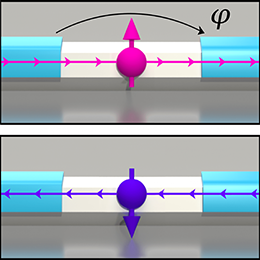
Quantum Information Science
QIS research studies the application of quantum physics to information science and technology. AEP has research groups spanning quantum sensing, communications, simulation, and computing, with experimental approaches including superconducting circuits, trapped ions, photonics, and semiconductor devices.
- Interesting
- Scholarships
- UGC-CARE Journals
Top 50 Emerging Research Topics in Physics
Explore the Fascinating Research Topics in Physics

Table of contents
1. quantum computing, 2. dark matter, 3. quantum gravity, 4. high-temperature superconductors, 5. neutrino physics, 6. exoplanets and astrobiology, 7. topological matter, 8. quantum simulation, 9. plasma physics, 10. gravitational waves, 11. black holes, 12. quantum sensors, 13. photonics and quantum optics, 14. materials science, 15. nuclear physics, 16. quantum thermodynamics, 17. high-energy particle physics, 18. quantum materials, 19. astrophysical neutrinos, 20. topological superconductors, 21. quantum information theory, 22. exotic particles, 23. 3d printing of advanced materials, 24. quantum biology, 25. quantum networks, 26. space-time crystal, 27. supersolidity, 28. soft matter physics, 29. dark energy, 30. quantum spintronics, 31. quantum field theory, 32. terahertz spectroscopy, 33. holography and ads/cft, 34. quantum cryptography, 35. quantum chaos, 36. mesoscopic physics, 37. quantum gravity phenomenology, 38. spin-orbit coupling, 39. optomechanics, 40. quantum metrology, 41. quantum phase transitions, 42. quantum chaos, 43. topological quantum computing, 44. superfluids and supersolids, 45. quantum key distribution, 46. quantum spin liquids, 47. topological insulators, 48. quantum artificial intelligence, 49. environmental physics, 50. acoustic and fluid dynamics.
Physics is a field that constantly evolves as researchers push the boundaries of our understanding of the universe. Over the years, countless ground-breaking discoveries have been made, from the theory of relativity to the discovery of the Higgs boson. In this article, iLovePhD will present you with the top 50 emerging research topics in physics, highlighting the frontiers of knowledge and the exciting possibilities they hold.

• Quantum algorithms for optimization problems • Quantum error correction and fault tolerance • Quantum machine learning and artificial intelligence

• Identifying dark matter particles • Dark matter and galaxy formation • New experimental techniques for dark matter detection
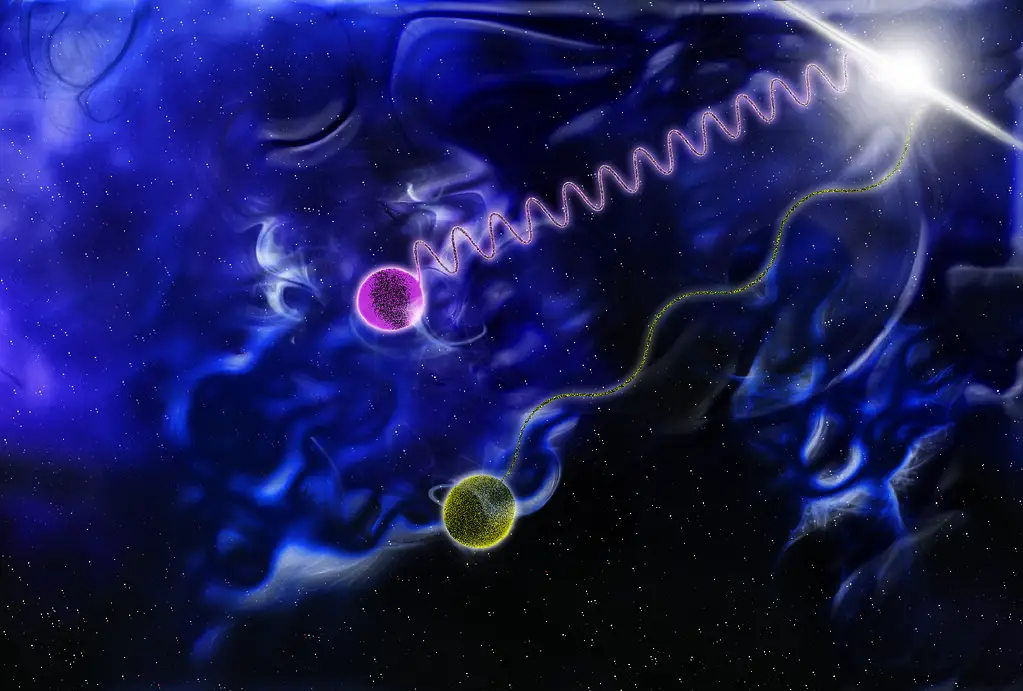
• String theory and its implications • Emergent space-time from quantum entanglement • Quantum gravity and black hole information paradox

• Understanding the mechanism behind high-temperature superconductivity • New materials and applications • Room-temperature superconductors
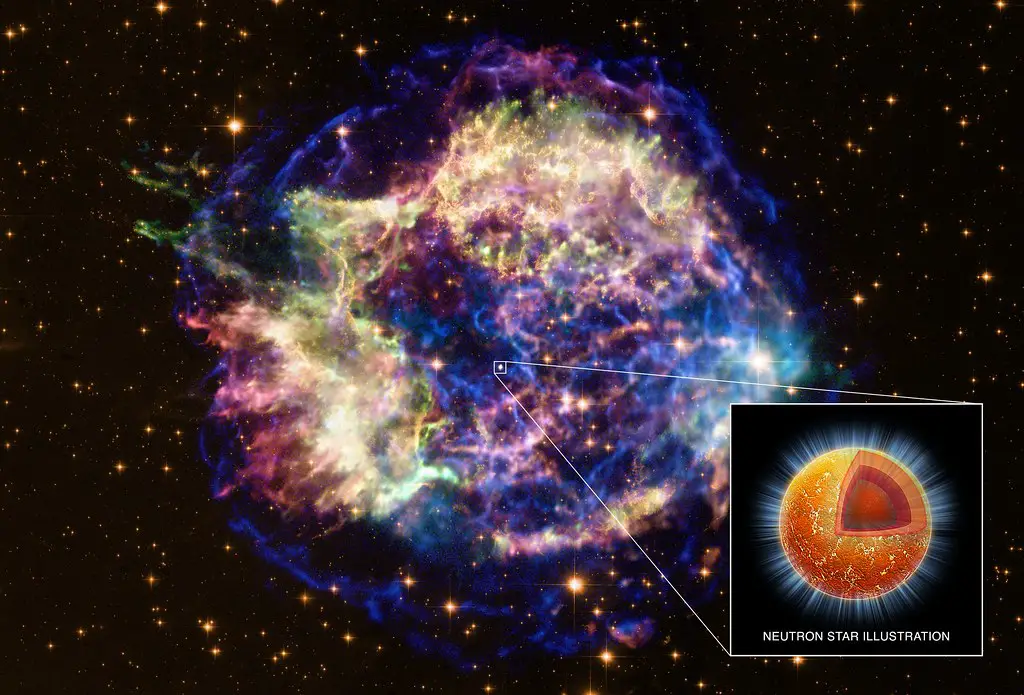
• Neutrino mass hierarchy and oscillations • Neutrinos in astrophysics and cosmology • Neutrinoless double beta decay
• Characterizing exoplanet atmospheres • Habitability and the search for life beyond Earth • The role of water in astrobiology
• Topological insulators and superconductors • Topological materials for quantum computing • Topological photonics
• Simulating complex quantum systems • Quantum simulation for materials science • Quantum simulators for fundamental physics
• Fusion energy and the quest for sustainable power • Space weather and its impact on technology • Nonlinear dynamics in plasmas
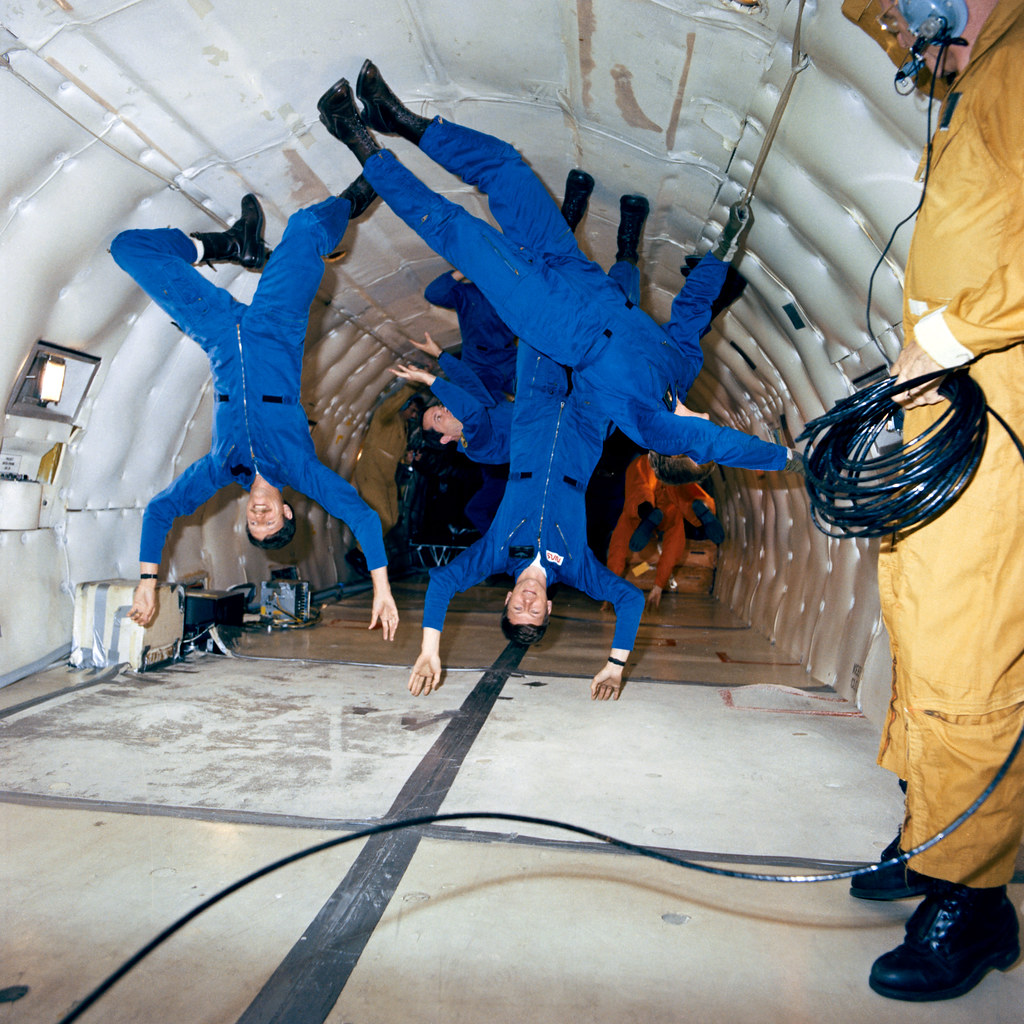
• Multi-messenger astronomy with gravitational waves • Probing the early universe with gravitational waves • Next-generation gravitational wave detectors
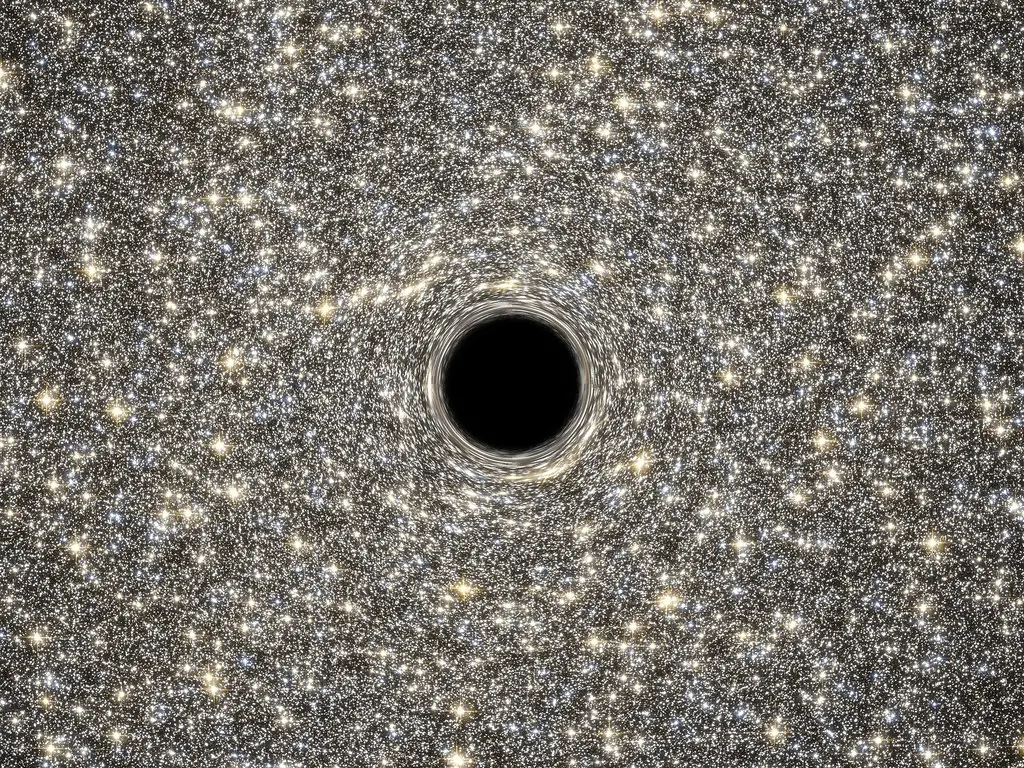
• Black hole thermodynamics and the information paradox • Observational techniques for studying black holes • Black hole mergers and their cosmic implications
• Quantum-enhanced sensing technologies • Quantum sensors for medical diagnostics • Quantum sensor networks
• Quantum communication and cryptography • Quantum-enhanced imaging and microscopy • Photonic integrated circuits for quantum computing
• 2D materials and their applications • Metamaterials and cloaking devices • Bioinspired materials for diverse applications
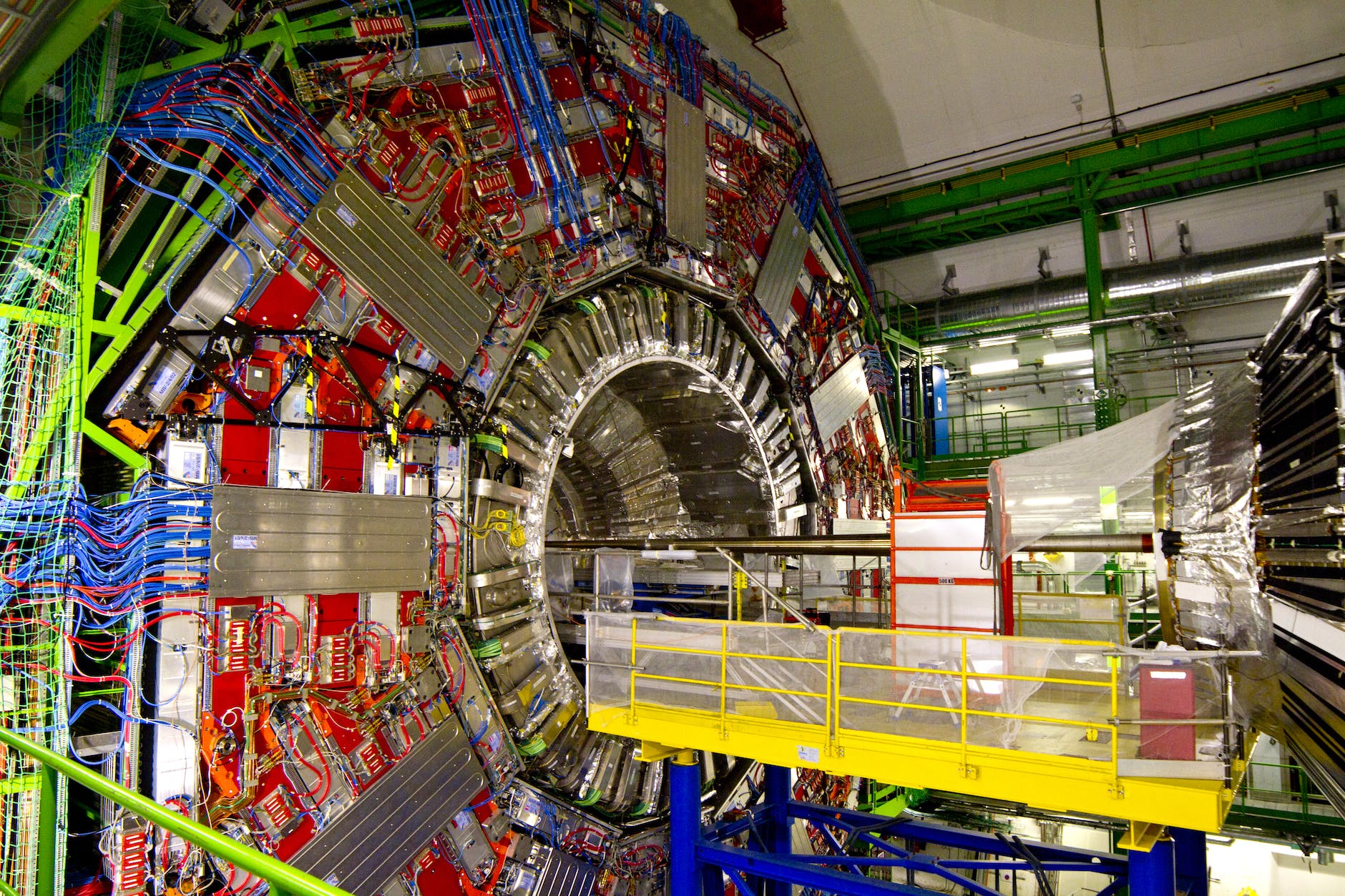
• Nuclear structure and reactions • Nuclear astrophysics and the origin of elements • Applications in nuclear medicine
• Quantum heat engines and refrigerators • Quantum thermodynamics in the quantum computing era • Entanglement and thermodynamics
• Beyond the Standard Model physics • Particle cosmology and the early universe • Future colliders and experiments
• Quantum phase transitions and exotic states of matter • Quantum criticality and its impact on materials • Quantum spin liquids
• Neutrinos from astrophysical sources • Neutrino telescopes and detection methods • Neutrinos as cosmic messengers
• Majorana fermions in condensed matter systems • Topological qubits for quantum computing • Topological superconductors in particle physics
• Quantum communication protocols • Quantum error correction and fault tolerance • Quantum algorithms for cryptography
• Search for axions and axion-like particles • Magnetic monopoles and their detection • Supersymmetry and new particles

• Customized materials with novel properties • On-demand manufacturing for aerospace and healthcare • Sustainable and recyclable materials
• Quantum effects in biological systems • Photosynthesis and quantum coherence • Quantum sensing in biological applications
• Quantum key distribution for secure communication • Quantum internet and global quantum connectivity • Quantum repeaters and entanglement distribution
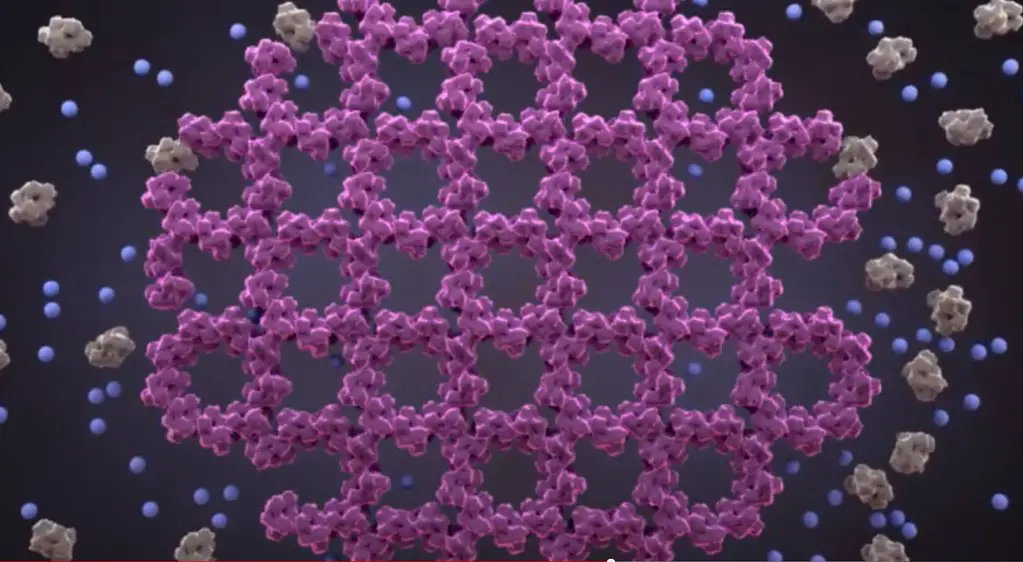
• Time crystals and their quantum properties • Applications in precision timekeeping • Space-time crystals in quantum information
• Theoretical models and experimental evidence • Quantum properties of supersolids • Supersolidity in astrophysical contexts
• Colloidal suspensions and self-assembly • Active matter and biological systems • Liquid crystals and display technologies
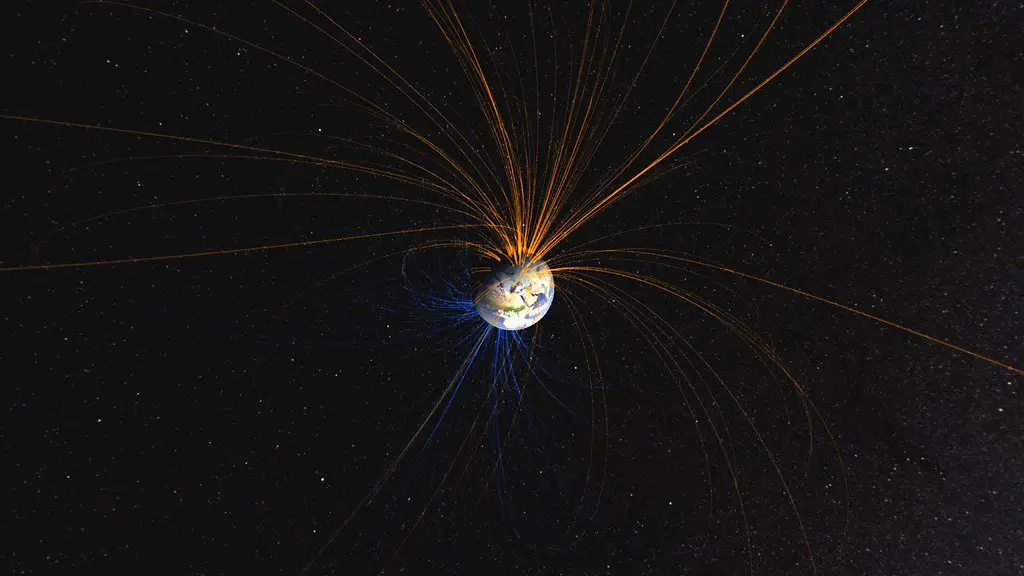
• Nature of dark energy and cosmic acceleration • Probing dark energy with large-scale surveys • Modified gravity theories
• Spin-based electronics for quantum computing • Spin transport and manipulation in materials • Quantum spin devices for information processing
• Conformal field theories and holography • Nonperturbative methods in quantum field theory • Quantum field theory in cosmology
• Terahertz imaging and sensing • Terahertz sources and detectors • Terahertz applications in healthcare and security
• Holography and black hole physics • AdS/CFT correspondence and quantum many-body systems • Holography in condensed matter physics
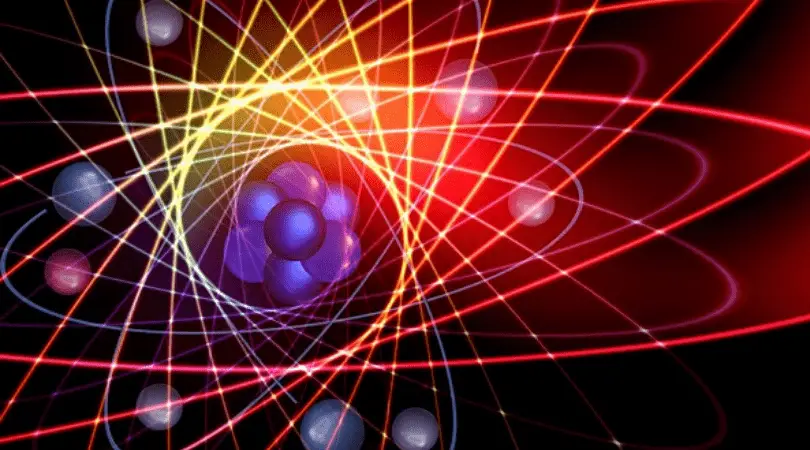
• Secure quantum communication protocols • Quantum-resistant cryptography • Quantum key distribution in real-world applications
• Quantum manifestations of classical chaos • Quantum chaos in black hole physics • Quantum scrambling and fast scrambling
• Quantum dots and artificial atoms • Quantum interference and coherence in mesoscopic systems • Mesoscopic transport and the quantum Hall effect
• Experimental tests of quantum gravity • Quantum gravity and cosmological observations • Quantum gravity and the early universe
• Spin-orbit coupling in condensed matter systems • Topological insulators and spintronics • Spin-orbit-coupled gases in ultracold atomic physics
• Quantum optomechanics and its applications • Cavity optomechanics in quantum information • Cooling and manipulation of mechanical resonators
• Precision measurements with entangled particles • Quantum-enhanced sensors for navigation and geodesy • Quantum metrology for gravitational wave detectors
• Quantum criticality and universality classes • Quantum phase transitions in ultra-cold atomic gases • Quantum Ising and XY models in condensed matter

• Topological qubits and fault-tolerant quantum computing • Implementing quantum gates in topological qubits • Topological quantum error correction codes
• Exotic phases of quantum matter • Supersolidity in ultra-cold gases • Applications in precision measurements
• Quantum cryptography for secure communication • Quantum repeaters and long-distance communication • Quantum key distribution in a practical setting
• Novel magnetic states and excitations • Fractionalized particles and any statistics • Quantum spin liquids in frustrated materials
• Topological edge states and protected transport • Topological insulators in condensed matter systems • Topological materials for quantum computing
• Quantum machine learning algorithms • Quantum-enhanced optimization for AI • Quantum computing for AI and data analysis
• Climate modeling and sustainability • Renewable energy sources and energy storage • Environmental monitoring and data analysis
• Sonic black holes and Hawking radiation in fluids • Aeroacoustics and noise reduction • Hydrodynamic instabilities and turbulence The field of physics is a treasure trove of exciting research opportunities that span from the universe’s fundamental building blocks to the development of cutting-edge technologies. These emerging research topics offer a glimpse into the future of physics and the potential to revolutionize our understanding of the cosmos and the technologies that shape our world. As researchers delve into these topics, they bring us one step closer to unlocking the mysteries of the universe.
- Astrophysics
- Electromagnetism
- Experiments
- GravitationalWaves
- ParticlePhysics
- QuantumMechanics
- thermodynamics
Do This… to Accept Your Paper
Top 10 ilovephd articles of 2023, ramalingaswami re-entry fellowship – re-ignite your research career in india, email subscription.

iLovePhD is a research education website to know updated research-related information. It helps researchers to find top journals for publishing research articles and get an easy manual for research tools. The main aim of this website is to help Ph.D. scholars who are working in various domains to get more valuable ideas to carry out their research. Learn the current groundbreaking research activities around the world, love the process of getting a Ph.D.
WhatsApp Channel
Join iLovePhD WhatsApp Channel Now!
Contact us: [email protected]
Copyright © 2019-2024 - iLovePhD
- Artificial intelligence
- Write my thesis
- Thesis writers
- Buy thesis papers
- Bachelor thesis
- Master's thesis
- Thesis editing services
- Thesis proofreading services
- Buy a thesis online
- Write my dissertation
- Dissertation proposal help
- Pay for dissertation
- Custom dissertation
- Dissertation help online
- Buy dissertation online
- Cheap dissertation
- Dissertation editing services
- Write my research paper
- Buy research paper online
- Pay for research paper
- Research paper help
- Order research paper
- Custom research paper
- Cheap research paper
- Research papers for sale
- Thesis subjects
- How It Works
100 Interesting Physics Topics For Research Paper In 2023

Searching for a topic in physics can be one of the more difficult challenges for students at any level. Teachers and professors want their students to research and write something original. They also want students to challenge themselves by pushing the envelope and studying new areas in the field. This can be overwhelming for students and trying to come up with even a handful of physics topics might seem an impossible task.
Choosing Physics Topics For a Project
A good physics research topic should be broad enough to let you find plenty of material to answer all of the important questions. It should, however, also be narrow enough to fit within the parameters of your assignment. We can help you with that. Check out our list of physics topics that cover a wide range of areas within the field:
Physics Research Paper Topics for High School
- How much are solar panels affected by dust?
- What is the discharge amount from a pinhole on a water bottle?
- Is time travel adequately explained in literature?
- Why do some carpets have more static buildup?
- How is light impacted when cast through a sugar solution?
More Topics in Physics High School
- What is the effect of light on degradable materials?
- How strong is the silk produced by a silkworm?
- Which truss design bridge supports the most weight?
- How much weight can nylon fishing lines maintain?
- How much weight can human hair maintain?
Five Cool Physics Topics to Do Quickly
- How strong is human hair of different thicknesses?
- Can eggs withstand more force from certain directions or angles?
- Can a metal pendulum accurately predict the sex of a chicken?
- What factors impact the heat capacity of different saltwater concentrations?
- How are projectile miniature rockets affected by temperature?
Physics Research Topics for College
- What are the mechanics of a perpetual clock?
- How does circular motion impact the rotation of various spheres?
- What are the components and nature of various atoms?
- How does weather affect gravity in falling objects?
- What role does physics play in the health care industry?
Physics Topics for Paper Graduate School
- What are the primary characteristics of the laws of motion?
- What are the major principles of Lorentz force law in relation to electromagnetism?
- How will quantum computing impact the physics of the 2020s?
- Will gravitational waves prove that Einstein’s theories are incorrect?
- How does rotational motion work when using different types of torque?
Special Topics in Calamity Physics
- How are calamity physics different from chaos theory?
- Do the concepts in Calamity Physics reflect reality?
- How do physic professionals view the opinions in Calamity Physics?
- Can Calamity Physics become a legitimate area of study?
- Where did the author of Calamity Physics get her ideas from?
Physics IA Topics Ideas for Studying
- What effect does temperature have on the speed of sound in a solid?
- What impact does sugar have on water’s refractive index?
- How does temperature influence the flight pattern of an item when fired?
- In what ways does shade affect a solar panel’s power output?
- How does the shape of a football affect its flight pattern?
Interesting Physics Topics for All
- Are floating cities a reality in light of rising water levels?
- Why was the 2020 Christmas Star such a rare phenomenon?
- What impact will the development of superconductors have on physics?
- How will the study of exotic materials be affected by superconductors?
- Will new discoveries in physics lead to new green technologies?
AP Physics Topics for High School
- How does one measure motion utilizing position-time charts?
- How is a ball’s motion on its way down a mirror image of its upward motion?
- How does one measure motion utilizing velocity-time charts?
- What are the major principles of electrostatics?
- Howe do simple pendulums and mass-spring systems work?
SAT Physics Topics Ideas for Studying
- How do airplanes gather wing lift?
- How does one measure the molecular sizes of various gases?
- How do gravity and wind resistance affect the arc of a ball thrown in the air?
- What patterns can be observed in an experiment involving paper airplane flights?
- In what ways is an object in free fall affected by gravity acceleration?
Physics GRE Topics for Studying
- How do magnetic fields in free space react to outside forces?
- What are the major components of optics and wave phenomena?
- How is a balloon’s surface area affective by weather?
- How does sound travel in different environments?
- What is the audible range of a human being?
MCAT Physics Topics Ideas for Studying
- Understand the characteristics of average speed and velocity.
- Understand how dimensions (distance and time) work in the Universe.
- Explain what Newton’s first, second, and third laws state.
- What is the law of Gravitation and what does it mean for the Earth’s physics?
- How do weight and mass differ in the construction of buildings?
Five Fun Physics Topics to Do Quickly
- How does kinetic energy help athletes improve performance?
- How does caloric intake affect the energy humans generate?
- What is the most effective way of optimizing a bottle rocket?
- What is the difference between potential energy and kinetic energy?
- How does the length and tension of a guitar string effect sound output?
Theoretical Physics Topics for Undergraduates
- How can our understanding of physics help reduce global warming?
- Why is physics essential to our society and how has it evolved?
- What are the major principles of quantum mechanics?
- What is the relationship between energy consumption and nuclear physics?
- What are the major factors that affect the trajectory of a rocket going to space? Discover more space topics .
Interesting Modern Physics Topics
- Why has the concept of cold fusion been contended by researchers?
- Is cold fusion a legitimate physical science or is it speculative?
- How can physics play a role in minimizing the effects of global warming?
- Why have Nobel Prize-winning physicists been contradicted in recent years?
- How is nanotechnology related to modern physics?
Great Physics Topics for Presentation
- What are the major principles that make an atomic bomb acts?
- How have the ideas for space and time explorations changed in the last 50 years?
- What impact did Galileo have on the world view of physics?
- What role did atomic particles play in building our universe?
- Is the Hadron collider capable of starting a black hole?
Physics Regents Topics for Preparation
- How much energy is expended when you go from walking to running?
- What makes perpetual motion machines work?
- What are the factors that affect drag in canoes?
- What are the differences between conservative forces and potential energy?
- In what ways is the conservation of energy affected by temperature?
Great Physics Paper Topics for a Short Project
- What are the best ways to make a catapult with Popsicle sticks?
- How to make a rudimentary prism at home?
- What factors affect the rotational speed of a DC motor?
- What characteristics lay within the concept of pyramid power?
- How do sailboats convert wind power to move forward?
Good Physics Projects Topics for a Long Project
- How much energy do solar panels input and output?
- How much energy do solar panels lose over a day?
- How did Stephen Hawking impact contemporary physics?
- What is the difference between centripetal and centrifugal forces?
- What are the measurement problems within quantum probability?
Physics Essay Topics Related to Everyday Situations
- How does temperature affect different musical instruments?
- How do you build a lawn sprinkler using a milk carton?
- How do you minimize the risk of egg breakage in cartons?
- Can light affect the shape and size of Jell-O?
- What does Einstein’s theory of relativity state about our surroundings?
Physics is really hard. We understand this and have committed ourselves to assist students at all levels and dealing with all situations. Our experts have put together these physics topics to help students save some time. We can also help develop custom physics science topics to fit any assignment requirements.
Just give us a call, email us, or send us a message by chat. Our customer service team representatives are available to help with any physics project topics you need. An excellent custom thesis is not a problem for us. We’ll connect you with the most qualified experts and will lighten the burden of the most difficult assignments.
Leave a Reply Cancel reply
Ask a question from expert
List of Top 240 Physics Research Topics in 2022

Before writing a research paper one must follow a few crucial steps of searching, researching, experimenting, and jotting. One cannot write a research paper on physics without following these steps. But before all these steps one has to decide the research topic. As the research topic chosen is the soul of the research paper. But choosing a research paper topic is not easy.
But with us, you can make the journey of writing a research paper on physics easier.
Here we are, to solve the most difficult problem of selecting/choosing the topic for writing a research paper. The research topic should be selected concerning the most important factor which is the availability of resources on that very topic. If you select a topic for writing a research paper on it, then kindly check if appropriate sources on it are available in the market or not.
Second, the topic should be chosen out of interest, as writing a research paper, especially on physics is going to be exasperating and a prolonged process that will make you tired. But to maintain consistency and perseverance in the work you must choose the topic of your interest, that will boost your interest and motivate you to keep going.
Definition of Physics
Physics is an important branch of science concerned with the nature and properties of matter, including mechanics, light, heat, sound, electricity, magnetism, etc. physics further has various sub-branches like classical mechanics, thermodynamics, electromagnetism or photonics, relativistic mechanic, quantum mechanics, optics and acoustics, condensed matter physics, nuclear physics, etc.
Physics is a wide subject having inculcated various topics in it. Writing a research paper on any of the topics of physics would be really time taking and make you feel tired. As it requires a lot of research, experimentation, and practical knowledge.
So, we are going to suggest to you some topics which are particularly related to the sub-branches of physics, interesting, as well as the material on all these topics are available on the internet, so you can choose any of these and start researching and writing.
25 General Research Topics in Physics
- Nuclear physics and its scope.
- Kinematics.
- Electromagnetic force is the strongest force. Comment.
- Liquid pressure versus air pressure.
- Dark matter studies.
- How were the planets formed?
- About positrons.
- Auger yield per nuclear decay. What is it?
- Plasma nitrogen fixation.
- Solar fuels.
- Role of ultrashort pulses in the maintenance of large infrastructure .
- High energy and particle theory.
- Quantum gravity and field theory.
- Strong interactions and field theory.
- Mesoscopic physics.
- Mass Moment of Inertia
- Angular momentum.
- Law of Conservation of Momentum
- Elasticity.
- The Electric Autonomous Vehicles.
- Electric vehicles.
- Sensors in vehicles.
- Analysis of Driverless Cars.
- Self-Driving Cars
- Investigation of Connected Cars
- Automotive Industry
- Concept of the continuum.
- Time dilation.
- Compare the thermodynamic debye model with the model of einstein.
- Describe the properties of fields with arbitrary spin.
- Describe the Feynman diagram.
- Theory of time travel.
- About exoplanets.
60 Latest and Innovative Research Topics in Physics
- Astrophysics, fusion, and plasma physics.
- Nanoscience and nanotechnology.
- Energy systems.
- Microfluidics and microsystems.
- Quantum information science.
- One-dimensional helium model.
- Shrinking of microchips.
- A four-stroke engine for atoms.
- What are electron whirlpools?
- Newly invented quantum flute.
- Making nanodiamonds out of bottle plastics.
- Entanglement of many atoms discovered.
- SU(N) matter is around 3 billion times cooler than deep space.
- The material emits pulses of super fluorescent light.
- Topological insulators.
- Molecular motors convert chemical energy into mechanical work.
- A quantum heat pump.
- Forces in jammed granular solids.
- Stable quantum batteries.
- Storing of energy into an electromagnetic field.
- Atoms’ clouds.
- Future of photovoltaic.
- What is the hall effect mystery?
- Relation between Neutron stars and gravitational waves.
- Superconducting diode.
- Multilayer graphene.
- Describe the 2D array of electrons and nuclear spin qubits.
- How does gravitational force impact the waves in water bodies?
- Transformative electronics.
- Artificial intelligence.
- How terrain evolves on icy comets.
- Binary star-planet system.
- Nasa’s Webb detects carbon dioxide in an exoplanet atmosphere. Write a descriptive note on the research.
- How giant meteorite impacts created the continent.
- Ripple's sheet protein structure.
- New fur for the quantum cat.
- New producing polymers.
- Foam stabilization.
- The formula for efficient hand sanitizers.
- What is hydrogel bioink?
- Tissue bioprinting.
- Classes of newly found semiconductors.
- Better metal-oxides.
- Greener energy.
- What is the MOXIE experiment?
- How are scientists producing oxygen on mars?
- Diamonds and rust at earth’s core-mantle boundary. Give the reason why.
- Using AI to train robots.
- About neuromorphic chip.
- Development of quantum computers.
- Bioengineering in the field of agriculture.
- Fossil crocs.
- X-shaped radio galaxies.
- Volcano catastrophe.
- Universe’s oldest fermions in the realm of quantum.
- Newly founded and added elements in the periodic table.
- Dark matter and dark energy.
- Hydroelectricity or electricity by nuclear energy.
- Wireless electricity.
Best Research Topics Related to the Sub-branches of Physics
The below listed are the sub-branches of physics.
- Modern Physics
- Thermodynamics
- Electricity
- Electronics
- Chemical Physics
- Astrophysics
- Nuclear Physics
- Considered Matter Physics
Definition of Mechanics and Research Topics Related to it
Mechanics is the branch of science and mathematics that deals with the study of motion and the forces that produce motion and result in displacement.
Top 10 Mechanics Research Topics
- Dynamics and Control.
- Production engineering.
- Aerodynamics and fluid control.
- Fluid mechanics.
- Vibrations, acoustics, and fluid-structure interaction.
- High-speed transportation systems.
- Aerial vehicles.
- Mechatronics.
- Aero-engine compressor blades.
Three Types of Mechanics
- Statistical
Definition of Classical Physics and Research Topics for it
Classical physics is the physics in which, from the physical ideas the newer ideas are predated. It basically encompasses all the theories that are drawn before the 20th century. Energy and the theory of matter are regarded as independent concepts throughout classical physics.
Top 10 Research Topics on Classical Physics
- Describe the newton law of motion.
- Why do ships not sink in water bodies?
- What are equipartitions explain with examples?
- Bernoulli’s principle.
- What causes surface tension?
- What do you mean by viscosity how does it vary from liquid to liquid?
- What is momentum?
- Explain oscillation.
Definition of Quantum Physics and Research Topics for it
Quantum physics or quantum mechanics is basically a theory in physics that provides a description of all the physical properties at the scale of atoms and sub-atomic particles.
Top 10 Quantum Physics Research Topics
- Schrodinger equation.
- Quantum field theory.
- Dirac equation.
- Quantum mechanics.
- Perturbation theory.
- Density matrices.
- Harmonic oscillator.
- Bracket notations.
Definition of Modern Physics and Research Topics for it
Modern physics is that branch of physics that deals with the theories which came into being after the 20th century. these theories are quantum mechanics, special relativity, general relativity, etc.
Top 10 Modern Physics Research topics
- Explain the theory of relativity.
- What was the ultraviolet catastrophe?
- Photoelectric effect.
- Classical lightwave model. Elaborate.
- Describe the working of the night vision device.
- Describe the production and uses of X-rays.
- Why the charge of an electron is quantized?
- State the relation between the kinetic energy of an electron relate to the light’s frequency and intensity.
- How will you identify the element by its line spectra?
- What is radioactive decay?
Definition of Thermodynamics and Research Topics for it
Thermodynamics is that branch of physics that deals with heat, work, and temperature, and their relation to energy, entropy, and the physical properties of matter and radiation. Basically, thermodynamics deals with the transfer of energy from one form to another form, and from one place to another.
Top 10 Thermodynamics Research Topics
- What are energy and its types?
- Explain and expand the quote, “energy can neither be created nor be destroyed”.
- Mention three types of thermodynamics processes.
- Uses of the kinetic energy.
- State some objects possess both kinetic and potential energy.
- A.C and D.C current.
- Working of electric motor.
- Working of electricity generator.
- Working of solar cells.
- Uses of wind energy.
Definition of Electricity and Research Topics on it
Electricity is defined as the flow of electric charge. Electricity is both a part of nature and a secondary form of energy.
Top 10 Electricity Research Topics
- Coulomb’s law
- Voltage sources.
- Electric potential difference.
- Combinations of capacitors.
- Ohm’s law
- Electric circuit fundamentals.
- Circuit analysis.
- Magnetic effect of current
- Combining resistors.
- Electric field and the movement of charge.
Definition of Magnetism and Research Topics on it
Magnetism is a type of force that is produced by moving electric charges. Magnetism creates two forces, force of attraction and force of repulsion.
Top 10 Research Topics for Magnetism
- Diamagnetism.
- Paramagnetism.
- Ferromagnetism.
- Antiferromagnetism.
- Superparamagnetism.
- Role of magnetic in speakers.
- The magnetic field of steady currents.
- Magnetic forces.
- Lorentz force.
Definition of Geophysics and Research Topics for it
Geophysics is a branch of natural science that deals with the physical properties and natural phenomena of the earth.
Top 10 Research Topics on Geophysics
- Electromagnetic waves.
- Radioactivity.
- Mineral physics.
- Fluid dynamics.
- Gravitational forces.
- Atmospheric science.
- Geomagnetism.
- Seismology.
Definition of Optics and Research Topics for it
Optics is the branch of physics that deals with the behavior and properties of light. Along with its interaction with matter and the instruments used to detect it.
Top 10 Research Topics Related to Optics
- Three branches of optics in physics.
- Geometrical optics
- Quantum optics.
- Physical optics.
- Ultra-violet rays
- Infrared rays.
- What is the ray of light?
- What is a light wave?
- State the difference between ray and wave.
- Refraction and reflection of light, are elaborate.
Definition of Electronics and Researh Topics Related to it
Electronics is a branch of science to be precise electrical engineering that deals with the emission, behavior, and effects of electrons using electronic devices.
Top 10 Research Topics Related to Electronics
- Fiber optic communication.
- Nanoelectronics.
- Zigbee technology.
- Human area network.
- Embedded systems.
- Organic light emitting diode.
Definition of Chemical Physics and Topics Related to it
Chemical physics is the amalgam of both chemistry and physics and the branch of science. It investigates physicochemical phenomena and studies chemical processes from the point of view of physics.
Top 10 Research Topics on Chemical Physics
- Computational chemical physics.
- Electrochemical energy materials, description, and their uses.
- Atomic and molecular formula.
- Chemical energy.
- Conversion of chemical energies.
- Fusion plasma physics.
- Condensed matter physics.
- Spectroscopy.
Definition of Biophysics and Research Topics on it
Biophysics is a course in science that applies approaches and methods traditionally used in physics to study biological phenomena. Biophysics covers all the scales of biological organization, from molecular to organismic and populations.
Top 10 Research Topics on Biophysics
- Structure of protein.
- Dynamics of molecules.
- Neurodegenerative diseases.
- Protein folding and self-assembling.
- Ultrafast laser spectroscopy.
- System biology and bio-networks.
- Force transduction in muscle.
- Proteomics and genomics.
- Membrane biophysics.
- System neuroscience.
Definition of Astrophysics and Research Topics on it
Astronomy is the branch of science that is concerned with the physical nature of stars and other celestial bodies in the universe. Astrophysics is a science that uses the methods and principles of physics and chemistry in the study of astronomical objects and phenomena.
Top 10 Research Topics on Astrophysics
- Stellar dynamics.
- Structure of galaxies.
- Astrophysical fluid dynamics.
- Cosmology and its theories.
- Theory of relativity.
- Statistical physics.
- Evolution of stars.
- Evolution of galaxies.
- Planetary motion.
- The secret behind black holes.
Definition of Nuclear Physics and Research Topics Related to it
Nuclear physics is the branch of physics that deals with the study of building blocks and interactions of atomic nuclei.
Top 10 Research Topics for Nuclear Physics
- State the general properties of the nucleus.
- Nuclear reactions.
- Nuclear fusion.
- Nuclear fission.
- Use of nuclear energy in making electricity.
- Nuclear weapons.
- Practical applications of nuclear phenomena.
- What are nucleons and glucons?
- Radioactive isotopes.
Definition of Condensed Matter Physics and Research Topics for it
Condensed matter physics is the branch of science in the field of physics that deals with both the microscopic and macroscopic physical properties of matter.
Top 10 Research Topics for Condensed Matter Physics
- Superfluid.
- Bose-einstein condensate.
- Liquid crystals.
- Complex fluids.
- Adhesion and lubrication.
- High-temperature superconductivity.
- Strong correlations.
- Semiconductor transistors.
- Laser technology.
- Importance of condensed matter physics.
These were some research topics on physics that we feel has helped you. A brief description of every branch of physics was done to make you aware of a bit of the complex words in science. So that your research could become easier and less difficult. Now that you are aware of every sub-branch, you should better start researching, experimenting, and jotting down the findings. Now you are all set to present a research paper on the table.
Get more about research and research topics down here -
- 130+ Marketing Research Topics for Marketing Students
- Top Trending 150+ Accounting Research Topics
- Top 140+ Research Topics for Journalism Students
- 120 Hot Research Topics for Nursing Students
- Top 50+ Research Topics for High School Students in 2022
- A Thorough Analysis of Market Research
- Research for Psychology and Personality Disorder
- Mental Health Research Topics for Students in 2022
- 4 Tips on How to Find Homework Answers Quickly
- How to Write Different Types of Research Paper ?
- How to Choose a Research Topic ?
- Step-by-step Guide For How to Write a Dissertation ?
- Scope of Career in Research and Development
- Organization study on HDFC bank
- Is Desklib Free?

Business Management
Writing & Compare Documents
Computer Science
Teaching and Learning
Personal Development
Research Topics
Recruitment
NVQ Level 3 Diploma in health & social care
Digital Marketing
Assignment Writing
International
Speech Topics
Travel And Lifestyle
Project Proposals
Your Feedback matters
Research Topics
The broad focus of Prof. Baranger's group is quantum open systems at the nanoscale , particularly the generation of correlation between particles in such systems. Fundamental interest in nanophysics-- the physics of small, nanometer scale, bits of solid-- stems from the ability to control and probe systems on length scales larger than atoms but small enough that the averaging inherent in bulk properties has not yet occurred. Using this ability, entirely unanticipated phenomena can be uncovered on the one hand, and the microscopic basis of bulk phenomena can be probed on the other. Additional interest comes from the many links between nanophysics and nanotechnology. Within this thematic area, our work ranges from projects trying to nail down realistic behavior in well-characterized systems, to more speculative projects reaching beyond regimes investigated experimentally to date.
Correlations between particles are a central issue in many areas of condensed matter physics, from emergent many-body phenomena in complex materials, to strong matter-light interactions in quantum information contexts, to transport properties of single molecules. Such correlations, for either electrons or bosons (photons, plasmons, phonons,…), underlie key phenomena in nanostructures. Using the exquisite control of nanostructures now possible, experimentalists will be able to engineer correlations in nanosystems in the near future. Of particular interest are cases in which one can tune the competition between different types of correlation, or in which correlation can be tunably enhanced or suppressed by other effects (such as confinement or interference), potentially causing a quantum phase transition-- a sudden, qualitative change in the correlations in the system.
My recent work has addressed correlations in both electronic systems (quantum wires and dots) and photonic systems (photon waveguides). We have focused on 3 different systems: (1) qubits coupled to a photonic waveguide, (2) quantum dots in a dissipative environment, and (3) low-density electron gas in a quantum wire. The methods used are both analytical and numerical, and are closely linked to experiments.
Research Topics description from ~2008:
The broad focus of Prof. Baranger's group is the interplay of electron-electron interactions and quantum interference at the nanoscale . Fundamental interest in nanophysics - the physics of small, nanometer scale, bits of solid - stems from the ability to control and probe systems on length scales larger than atoms but small enough that the averaging inherent in bulk properties has not yet occurred. Using this ability, entirely unanticipated phenomena can be uncovered on the one hand, and the microscopic basis of bulk phenomena can be probed on the other. Additional interest comes from the many links between nanophysics and nanotechnology. Within this thematic area, our work ranges from projects trying to nail down realistic behavior in well-characterized systems, to more speculative projects reaching beyond regimes investigated experimentally to date. Currently, 5 topics are being actively pursued: 1. Kondo Effect in Nanoscale Systems The Kondo effect is a classic of many-body physics involving the correlation of an electron in an isolated level with a bulk Fermi sea. In contrast, we consider a finite size Fermi sea and so treat the non-zero level-spacing in the lead. The relevant experimental situation is two quantum dots connected by tunneling, a very small one to supply the electron in an isolated level and a large one to act as a nanoscale Fermi sea. [with R. Kaul, D. Ullmo, and Prof. S. Chandrasekharan] 2. Molecular Electronics We have established a state-of-the-art program to calculate the electric current through single molecules. This involved substantial program development in previous years; we are now concentrating on studying various systems. For instance, we carried out an extensive study of molecules containing cobaltocene , a sandwich molecule consisting of a Co atom between two 5-member carbon rings. Cobaltocene has spin 1/2, and manipulation of this spin strongly affects the electrical conduction. Thus we have introduced the first examples of true molecular spintronics - a spin filter, spin valve, and spin switch. [with R. Liu, S.-H. Ke, and Prof. W. Yang] 3. Quantum Computing: Decoherence in Quantum Error Correction We focus on the effects of decoherence - processes which break the quantum mechanical coherence at the basis of this type of computation. A key question is how decoherence scales as the computer becomes larger, that is, as the number of qubits increases so that the states of the computer become increasingly more complicated entangled states. Initial pessimistic estimates were circumvented by quantum error correction , a clever encoding of a single logical qubit using several physical qubits. We are studying how decoherence due to correlated noise scales in a computer using error correction. [with E. Novais and Prof. E. Mucciolo] 4. Toward Strong Interactions in Circular Quantum Dots The “electron gas” model of electrons in solids – in which the conduction electrons interact via Coulomb forces but the ionic potential is neglected – has been a key paradigm of solid state physics. Quantum mechanically, the physical properties change dramatically depending on the balance between the strength of the Coulomb interaction and the kinetic energy. The limiting cases are well understood: for very weak interactions the particles are delocalized while for very strong interactions they localize in a Wigner crystal. The physics at intermediate densities is surprisingly rich and remains at the forefront of research. We are studying the intermediate density electron gas confined to various nanostructures by using quantum Monte Carlo techniques. [with A. Ghosal, D. Guclu, and Prof. C. Umrigar] 5. Quantum Phase Transitions We are studying models of strongly interacting systems in which there is a quantum (zero temperature) phase transition as a function of disorder strength. The models are chosen so that there is a cooperative many-body ground state (superconductivity or ferromagnetism), and the disorder introduces inhomogeneity through quantum interference. As the inhomogeneity in the system grows, the cooperative state is eventually killed at a quantum phase transition. Through careful study using recently developed algorithms, we identify a bosonic superconductor-insulator transition which has new critical exponents which sharply disagree with previous theoretical prejudices. [with A. Priyadarshee and Prof. S. Chandrasekharan]
- Administrative Website
- Our Facilities
- Advanced Light Imaging and Spectroscopy (ALIS) facility
- Instrument Shop
- Instructional Machine Shop
- Duke Teaching Observatory
- Directions & Maps
- 1924 to 1945
- 1946 to 1962
- 1963 to 1985
- 1986 to 2005
- Faculty Interviews
- Lawrence C. Biedenharn
- Edward G. Bilpuch
- William M. Fairbank
- Walter Gordy
- Harold W. Lewis
- Fritz London
- Henry W. Newson
- Walter M. Nielsen
- Lothar W. Nordheim
- Hertha Sponer
- William D. Walker
- Department Chairs
- Former and Current Faculty
- Statement on Conduct
- Conduct Accountability Committee
- Department Resources
- Leadership & Department Contacts
- Fritz London Memorial Prize
- Fritz London Memorial Lecture
- Learning About Physics
- Learning About Biophysics
- Credit for College Board Advanced Placement (AP)
- B.S. Degree Requirements
- B.A. Degree Requirements
- Physics Minor Requirements
- Concentration in Astrophysics
- Biophysics Faculty
- Introductory Physics Course
- Intro Course Placement
- Sample Course Schedules
- Faculty Research Advisors
- Independent Study
- Undergraduate Research Fellowships
- Fellowships for Majors
- Study Abroad
- Graduation With Distinction
- Daphne Chang Memorial Award
- Tutoring & Course Help
- Transfer Credit FAQ
- Ph.D. Requirements
- Admissions Process
- Past Fellowship Recipients
- Living in Durham
- Campus Visits & Open House
- Graduate Placements
- New Student Orientation
- Assessment Exams
- Academic Integrity Policy
- Criteria For Good Standing
- Standards of Conduct
- Research Talks
- Preliminary Examination
- Dissertation
- Mini Courses
- Conference Travel
- Steps to Graduation
- GSO Meeting Minutes
- GSO Updates
- All Courses
- Non-Physics Majors
- Introductory Undergraduate
- Undergraduate Core
- Undergraduate Electives
- Graduate Core
- Graduate Electives
- Astrophysics
- Atomic, Molecular & Optics
- Condensed Matter
- Nuclear/Particle
- Primary and Joint Faculty
- Secondary Faculty
- Research, Teaching or Adjunct Faculty
- Emeritus Faculty
- Researchers
- Graduate Students
- Atomic/Molecular/Optical (AMO) Physics
- Biological Physics
- Condensed Matter & Materials Physics
- Cosmology & Astrophysics
- Experimental Nuclear Physics
- Mathematical Physics
- High Energy Physics
- Imaging & Medical Physics
- Nonlinear & Complex Systems
- Quantum Information Science
- Theoretical Nuclear & Particle Physics
- Research Labs
- BQ1: What are the ultimate laws of nature?
- BQ2: What principles govern strongly interacting matter?
- BQ3: How does quantum physics explain and predict novel materials?
- BQ4: How can we understand complex soft matter and biological systems?
- BQ5: How can physics research improve the practice of medicine?
- BQ6: How does physics drive the information and computing revolutions?
- BQ7: How can we use physics to benefit society?
- Publications
- Alumni Profiles
- Assisting Duke Students
- For Current Students
A List of 240 Physics Topics & Questions to Research
Plates break when you drop them. Glasses help you see better. Have you ever wondered why?
Our specialists will write a custom essay specially for you!
Physics has the answer. It studies the observable as well as invisible aspects of nature. An essential part of this is examining the structure and interactions of matter.
Are you a high-schooler studying for your exams? Or maybe you need to write an interesting physics paper for your Ph.D. research or college seminar? This article presents a list of the most popular topics in physics for you to choose from.
Best of all, you don’t have to push yourself too hard to finish your essay. Custom-writing.org is happy to help students with all kinds of written assignments.
🔝 Top 10 Physics Research Topics
✅ branches of physics.
- ⭐ Top 10 Physics Topics
- ⚙️ Mechanics
- 🌡️ Thermodynamics
- ⚡ Electromagnetism
- 🔊 Sounds & Waves
- ☢️ Modern Physics
- 🔋 Physics Project Topics
- 🔭 Astrophysics
- 🌎 Physical Geography
- 🤔 Theoretical Physics
- ⚛️ Quantum Physics
🔍 References
- Modern vs. classical physics
- Gravity method in geophysics
- Why can’t the multiverse be real?
- Nuclear physics vs. quantum physics
- Photonics’ relationship to other fields
- Is electromagnetism the strongest force?
- What would extra dimensions look like?
- The importance of kinematics in real life
- Is string theory a generalization of quantum field theory?
- The difference between liquid pressure and air pressure
Now: before writing about physics you should know about its main branches. These are classical and modern . Let’s take a closer look:
- Mechanics , which is concerned with motion. Two of its essential aspects are kinematics and dynamics.
- Optics helps us understand the properties of light.
- Another branch investigates waves and sound . It studies the way they travel and how they are produced.
- Thermodynamics deals with heat and motion. One of its key concepts is entropy.
- Electromagnetism studies the interactions between charged particles. It also deals with the forces and fields that surround them.
- Finally, physical geographers observe our Earth’s physical features. These include environmental processes and patterns.
- Atomic physics , which examines the structure and behavior of atoms.
- Nuclear physics investigates the nucleus of atoms. This branch often deals with radioactivity.
- Scientists working in quantum physics concentrate on the erratic behavior of waves and particles.
- Relativity can be general and special. Special relativity deals with time and motion. General relativity describes gravity as an alteration of spacetime caused by massive objects.
- Cosmology and astrophysics explore the properties of celestial bodies. Cosmologists strive to comprehend the universe on a larger scale.
- Mesoscopic physics covers the scale between macroscopic and microscopic.

You can talk about any of these branches in your essay. Keep in mind that this division is a basic outline. Strictly speaking, everything that happens around you is physics! Now, we’re all set to move on to our physics paper topics.
Just in 1 hour! We will write you a plagiarism-free paper in hardly more than 1 hour
⭐ Top 10 Physics Topics 2024
- Biophysics vs. biochemistry
- The future of nano-physics
- The use of perturbation theory
- Possible cause of baryogenesis
- Solid-state vs. condensed matter physics
- Why is the quark model introduced?
- The importance of plasma in physics
- Statistical mechanics vs. statistical physics
- Ways to calculate electronic structure
- Difference between matter and dark matter
🧲 Classical Physics Topics to Write About
Classical physics deals with energy, force, and motion. You encounter this kind of physics in everyday life. Below, we’ve compiled a list with compelling prompts you’ll recognize from your physics class:
⚙️ Mechanics Essay Topics
- What does Newton’s laws of motion state?
- How do ships stay afloat?
- Equipartition: for what systems does it not hold?
- What does Bernoulli’s principle state about fluids?
- Surface tension: what causes it?
- How does buoyancy work?
- An overview of the molecular origins of viscosity.
- The equipartition theorem: how does it connect a system’s temperature to its energies?
- The benefits of the continuum assumption.
- Contrast the different types of forces.
- Explain the term “momentum.”
- Kinematics: describing the relationships of objects in constrained motion.
- What causes objects to oscillate?
🌡️ Thermodynamics Paper Topics
- Thermodynamics as a kinetic theory of matter.
- What is entropy?
- Describe the three types of thermodynamic processes.
- The Carnot heat engine as part of a thermodynamic cycle.

- Perpetual motion: is it possible or not?
- Investigate fire in terms of chemistry and thermodynamics.
⚡ Electromagnetism Topics to Research
- Examine the connection between electric potential and electric field.
- What makes an excellent conduit?
- How does a dielectric impact a capacitor?
- Contrast current, resistance, and power.
- How do magnetic fields relate to electricity?
- Explain inductance. What causes it?
- How do induction stoves work?
🔊 Essay Topics on Sounds & Waves
- Sound waves: how do they travel?
- Describe the two types of mechanical waves.
- What are electromagnetic waves used for?
- The difference between interference and diffraction.
- Music and vibrations: the properties of sound.
👓 Optics Topics to Write About
- How does reflection work?
- What happens when an object absorbs light?
- Why does light break into a rainbow?
- Lasers: what do we use them for?
- What causes Aurora Borealis?
- Photography: what happens when you change the aperture?
- Explain what influences the colors of sunsets.
- Fata Morgana mirages: where do they originate from?
- What is the Novaya Zemlya effect?
☢️ Modern Physics Topics for a Paper
The world of modern physics shifts away from its more tangible origins. It deals with atoms and even smaller particles. Nuclear, atomic, and quantum physics belong to this category. One of the central problems of modern physics is redefining the concept of gravity.
- Relativity: a discovery that turned our understanding of physics upside down.
- An overview of 20th century physics.
- The ultraviolet catastrophe and how it was solved.
- What happens to the energy entering an ideal blackbody?
- The photoelectric effect: creating current with light.
- Why did the classical lightwave model become outdated?
- How do night vision devices work?
- The production of x-rays.
- Explain why the charge of electrons is quantized.
- How does the kinetic energy of an electron relate to the light’s frequency and intensity?
- Describe the photon model of the Compton Scattering.
- How do you identify an element using its line spectra?
- Cold Fusion: how likely is it?
- Explain the Pauli Exclusion Principle.
- Electron shells and atomic orbitals: properties of electrons.
- What causes peaks in the x-ray spectrum?
- How do you calculate radioactive decay?
- Carbon dating: how accurate is it?
- The discovery of radioactivity.
- What holds electronic nuclei together?
- Nuclear Fusion: will it ever be possible?
- Describe the types of elemental transmutation.
- Applications of nuclear fission.
- Virtual particles: how do they come into existence?

- Nucleosynthesis: creating atomic nuclei.
- How do you dope a semiconductor using ion implantation?
- What are the magic numbers?
- Superheavy primordial elements: the history of unbihexium.
- Predictions surrounding the island of stability.
- How does a computer tomography work?
🔋 Physics Project Topics for a Science Fair
What’s the most fun part of every natural science? If you said “experiments,” you guessed it! Everybody can enjoy creating rainbows or exploring the effects of magnets. Your next physics project will be as fascinating as you want it to be with these exciting ideas!
- Build a kaleidoscope and learn how it works.
- Investigate the centripetal force with the help of gelatin and marbles.
- Make a potato battery.
- Construct an elevator system.
- Prove Newton’s laws of motion by placing objects of different weights in a moving elevator.
- Learn how a telescope works. Then build one from scratch.
- Levitate small objects using ultrasound.
- Measure how fast a body in free fall accelerates.
- Find out what causes a capacitor to charge and discharge over time.
- Measure how light intensity changes through several polarizing filters.
- Observe how sound waves change under altered atmospheric conditions.
- Find out how a superheated object is affected by its container.
- Determine the mathematics behind a piece of classical music.
- Replicate an oil spill and search for the best way to clean it up.
- What makes a circular toy easy to spin? Experiment by spinning hula hoops of different sizes.
- Make DNA visible. What happens if you use different sources of plant-based DNA?
- Charge your phone with a handmade solar cell.
- Find out what properties an object needs to stay afloat.
- Create music by rubbing your finger against the rim of a glass. Experiment with several glasses filled with different amounts of water.
- Compare the free-fall speed of a Lego figure using various parachutes.
- Experiment with BEC to understand quantum mechanics.
- Make a windmill and describe how it works.
- Build an automatic light circuit using a laser.
- How do concave and convex mirrors affect your reflection?
- Investigate how pressure and temperature influence the air volume.
- Determine the conductivity of different fluids.
- Learn about the evolution of the universe by measuring electromagnetic radiation.
- Capture charged particles in an ion trap.
- Build a rocket car using a balloon.
- Experiment with pendulums and double pendulums. How do they work?
🔭 Astrophysics Topics for a Research Paper
Astrophysicists, astronomers, and cosmologists observe what happens in space. Astronomy examines celestial bodies, while astrophysics describes their mechanics. At the same time, cosmology attempts to comprehend the universe as a whole.
- Explain when a celestial body is called a planet.
- Dark energy and dark matter: how do they affect the expansion of the universe?
- The cosmic microwave background: investigating the birth of the universe.
- What are the possible explanations for the expansion of the universe?
- Evidence for the existence of dark matter.
- The discovery of gravitational waves: consequences and implications.
- Explore the history of LIGO.
- How did scientists observe a black hole?
- The origins of light.
- Compare the types of stars.
- Radioactivity in space: what is it made of?
- What do we know about stellar evolution?
- Rotations of the Milky Way.
- Write an overview of recent developments in astrophysics.
- Investigate the origin of moons.
- How do we choose names for constellations?
- What are black holes?
- How does radiative transfer work in space?
- What does our solar system consist of?
- Describe the properties of a star vs. a moon.

- What makes binary stars special?
- Gamma-ray bursts: how much energy do they produce?
- What causes supernovae?
- Compare the types of galaxies.
- Neutron stars and pulsars: how do they differ?
- The connection between stars and their colors.
- What are quasars?
- Curved space: is there enough evidence to support the theory?
- What produces x-rays in space?
- Exoplanets: what do we know about them?
🌎 Physical Geography Topics to Write About
Physical geographers explore the beauty of our Earth. Their physical knowledge helps them explain how nature works. What causes climate change? Where do our seasons come from? What happens in the ocean? These are the questions physical geographers seek to answer.
Receive a plagiarism-free paper tailored to your instructions. Cut 20% off your first order!
- What creates rainbows?
- How do glaciers form?
- The geographical properties of capes.
- What causes landslides?
- An overview of the types of erosion.
- What makes Oceania’s flora unique?
- Reefs: why are they important?
- Why is there a desert in the middle of Siberia?
- The geography of the Namibian desert.
- Explain the water cycle.
- How do you measure the length of a river?
- The Gulf Stream and its influence on the European climate.
- Why is the sky blue?
- What creates waves?
- How do marshes form?
- Investigate the causes of riptides.
- The Three Gorges Dam: how was it built?
- Explain the phenomenon of Green Sahara.
- The consequences of freshwater pollution.
- What are the properties of coastal plains?
- Why is the Atacama Desert the driest place on Earth?
- How does a high altitude affect vegetation?
- Atmospheric changes over the past 100 years.
- Predicting earthquakes: a comparison of different methods.
- What causes avalanches?
- Seasons: where do they come from?
- The Baltic and the Northern Seas meeting phenomenon.
- The geographical properties of the Altai Mountains.
- How do the steppes form?
- Why are some water bodies saltier than others?
🤔 Theoretical Physics Topics to Research
Math fans, this section is for you. Theoretical physics is all about equations. Research in this area goes into the development of mathematical and computer models. Plus, theoretical physicists try to construct theories for phenomena that currently can’t be explained experimentally.
- What does the Feynman diagram describe?
- How is QFT used to model quasiparticles?
- String theory: is it a theory of everything?
- The paradoxical effects of time travel.
- Monstrous moonshine: how does it connect to string theory?
- Mirror symmetry and Calabi-Yau manifolds: how are they used in physics?
- Understanding the relationship between gravity and BF theories.
- Compare the types of Gauge theories.

- Applications of TQFT in condensed matter physics.
- Examine the properties of fields with arbitrary spin.
- How do quarks and gluons interact with each other?
- What predictions does quantum field theory make for curved spacetime?
- How do technicolor theories explain electroweak gauge symmetry breaking?
- Quantum gravity: a comparison of approaches.
- How does LQG address the structure of space?
- An introduction into the motivation behind the eigenstate thermalization hypothesis.
- What does the M-theory state?
- What does the Ising model say about ferromagnetism?
- Compare the thermodynamic Debye model with the Einstein model.
- How does the kinetic theory describe the macroscopic properties of gases?
- Understanding the behavior of waves and particles: scattering theory.
- What was the luminiferous aether assumption needed for?
- The Standard Model of particles: why is it not a full theory of fundamental interactions?
- Investigate supersymmetry.
- Physical cosmology: measuring the universe.
- Describe the black hole thermodynamics.
- Pancomputationalism: what is it about?
- Skepticism concerning the E8 theory.
- Explain the conservation of angular momentum.
- What does the dynamo theory say about celestial bodies?
⚛️ Quantum Physics Topics for Essays & Papers
First and foremost, quantum physics is very confusing. In quantum physics, an object is not just in a specific place. It merely has the probability to be in one place or another. Light travels in particles, and matter can be a wave. Throw physics as you know it overboard. In this world, you can never be sure what and where things really are.
- How did the Schrödinger Equation advance quantum physics?
- Describe the six types of quarks.
- Contrast the four quantum numbers.
- What kinds of elementary particles exist?
- Probability density: finding electrons.
- How do you split an atom using quantum mechanics?
- When is an energy level degenerate?
- Quantum entanglement: how does it affect particles?
- The double-slit experiment: what does it prove?
- What causes a wave function to collapse?
- Explore the history of quantum mechanics.
- What are quasiparticles?
- The Higgs mechanism: explaining the mass of bosons.
- Quantum mechanical implications of the EPR paradox.
- What causes explicit vs. spontaneous symmetry breaking?
- Discuss the importance of the observer.
- What makes gravity a complicated subject?
- Can quantum mechanical theories accurately depict the real world?
- Describe the four types of exchange particles.
- What are the major problems surrounding quantum physics?
- What does Bell’s theorem prove?
- How do bubble chambers work?
- Understanding quantum mechanics: the Copenhagen interpretation.
- Will teleportation ever be possible on a large scale?
- The applications of Heisenberg’s uncertainty principle.
- Wave packets: how do you localize them?
- How do you process quantum information?
- What does the Fourier transform do?
- The importance of Planck’s constant.
- Matter as waves: the Heisenberg-Schrödinger atom model.
We hope you’ve found a great topic for your best physics paper. Good luck with your assignment!
You might also be interested in:
- 220 Best Science and Technology Essay Topics to Write About
- 501 Research Questions & Titles about Science
- 204 Research Topics on Technology & Computer Science
- A List of 212 Brilliant Research Proposal Topics to Investigate
- 300 Interesting Chemistry Topics & Writing Tips
- Physics: Encyclopedia Britannica
- AP Physics C: Mechanics: AP Students
- Topics in Modern Physics: WorldScientific
- All Projects: Dartmouth College
- Topics in Astrophysics: Harvard
- Ask an Astrophysicist: NASA
- Physical Geography: National Geographic
- Theoretical Physics: Latest Research and News: Nature.com
- Topics in Theoretical Physics: University of Mississippi
- What Is Quantum Mechanics?: LiveScience
- Share to Facebook
- Share to Twitter
- Share to LinkedIn
- Share to email

Biology is often called the science of life. From bacteria to whales, biologists study all kinds of organisms. Have you ever wondered why bees dance? Or how can chickens be the closest modern relatives to dinosaurs? The buzzing world is full of complex wonders like these. That’s why it’s so...

Culture is a set of knowledge, behaviors, and beliefs shared by a group of people. You would probably agree that it’s an integral part of humanity. It’s no wonder that students are often assigned to write about it. That’s why we came up with a list of interesting and creative...

The Earth is a complex system. To understand it, geologists examine the lithosphere and its layers. They trace our planet’s history by using physical and chemical methods. At the same time, geographers observe environmental patterns. They also focus on the interaction between humans and nature. Keep reading to find out...

Mathematics is the science of numbers and shapes. Writing about it can give you a fresh perspective and help to clarify difficult concepts. You can even use mathematical writing as a tool in problem-solving. In this article, you will find plenty of interesting math topics. Besides, you will learn about...

Cause and effect essays examine how an event happened and what consequences it had. Gaining weight after eating lots of fast food is an example of a cause-and-effect relationship. Possible topics cover a variety of subjects ranging from mental health to history and politics. This article gives you an outline...

An analysis essay aims to break down the subject in order to understand it. You can choose to analyze a text, a process, or an idea. This article will help you write a great essay! Selecting an interesting topic makes writing a lot easier. We’ve prepared a list of excellent...

Everybody knows that being healthy requires effort. We should exercise regularly and maintain a balanced diet. However, the reward is worth it. A healthy lifestyle prevents chronic illnesses and leads to better body performance. Besides, if you improve your physical well-being, your mental health will strengthen as well! In this...

Environment affects us all, whether we want it or not. Political leaders and students alike discuss ways to tackle environmental topics & issues. Some might argue about the role humans play in all this. The fact remains that our environment is a delicate matter. That’s why we must educate ourselves...

Our code of ethics is derived from what we think is right or wrong. On top of that, we have to agree to the moral standards established by the society we live in. Conventional norms generally label theft, murder, or harassment as bad. However, there are many influences that impact...

A definition explains the meaning of a term or a concept. In a dictionary, you’ll find a definition in a single sentence. A definition paper, however, encompasses several paragraphs. Such an essay, amongst other things, can include personal experience and examples. To write a successful definition paper, you need to...

As simple as it is, the purpose of the descriptive essay is to explain or portray its subject. It can focus on any topic or issue you want to write about. Be sure that any middle school, high school, or college student can manage this type of creative writing assignment!...

Rhetorical analysis essay focuses on assessing the method used for delivering a message. This assignment isn’t about giving an opinion on the topic. The purpose is to analyze how the author presents the argument and whether or not they succeeded. Keep reading to find out more strategies and prompts for...
Thanks for the great article

Thank you for your feedback, James!
- Follow us on Facebook
- Follow us on Twitter
- Follow us on LinkedIn
- Watch us on Youtube
- Latest Explore all the latest news and information on Physics World
- Research updates Keep track of the most exciting research breakthroughs and technology innovations
- News Stay informed about the latest developments that affect scientists in all parts of the world
- Features Take a deeper look at the emerging trends and key issues within the global scientific community
- Analysis Discover the stories behind the headlines
- Blog Enjoy a more personal take on the key events in and around science
- Events Plan the meetings and conferences you want to attend with our comprehensive events calendar
- People Meet the people behind the science
- Opinion and reviews Find out whether you agree with our expert commentators
- Interviews Discover the views of leading figures in the scientific community
- Personalities Find out who’s doing what in industry and academia
- Impact Explore the value of scientific research for industry, the economy and society
- Business and innovation Find out how recent scientific breakthroughs are driving business innovation and commercial growth
- Education and outreach Learn about novel approaches to educating and inspiring the scientists of the future
- Policy and funding Understand how emerging policy changes could affect your work and career
- Projects and facilities Follow the latest progress at the world’s top scientific experiments
- Innovation showcases A round-up of the latest innovation from our corporate partners
- Collections Explore special collections that bring together our best content on trending topics
- Artificial intelligence Explore the ways in which today’s world relies on AI, and ponder how this technology might shape the world of tomorrow
- #BlackInPhysics Celebrating Black physicists and revealing a more complete picture of what a physicist looks like
- Nanotechnology in action The challenges and opportunities of turning advances in nanotechnology into commercial products
- The Nobel Prize for Physics Explore the work of recent Nobel laureates, find out what happens behind the scenes, and discover some who were overlooked for the prize
- Revolutions in computing Find out how scientists are exploiting digital technologies to understand online behaviour and drive research progress
- The science and business of space Explore the latest trends and opportunities associated with designing, building, launching and exploiting space-based technologies
- Supercool physics Experiments that probe the exotic behaviour of matter at ultralow temperatures depend on the latest cryogenics technology
- Women in physics Celebrating women in physics and their contributions to the field
- Audio and video Explore the sights and sounds of the scientific world
- Podcasts Our regular conversations with inspiring figures from the scientific community
- Video Watch our specially filmed videos to get a different slant on the latest science
- Webinars Tune into online presentations that allow expert speakers to explain novel tools and applications
- IOP Publishing
- Enter e-mail address
- Show Enter password
- Remember me Forgot your password?
- Access more than 20 years of online content
- Manage which e-mail newsletters you want to receive
- Read about the big breakthroughs and innovations across 13 scientific topics
- Explore the key issues and trends within the global scientific community
- Choose which e-mail newsletters you want to receive
Reset your password
Please enter the e-mail address you used to register to reset your password
Registration complete
Thank you for registering with Physics World If you'd like to change your details at any time, please visit My account
Can you solve this quantum cryptic word search?
How well do you know your quantum physics? Find out with this fun, cryptic word search, created by Ian Randall . All answers are hidden in the grid vertically, horizontally or diagonally, with no letters skipped

You can download a PDF of this puzzle . The answers will be published on 1 May on the Physics World website. Please note that this word search is just for fun; there are no prizes.
Wave range? A plum tide at sea (9)
Sequence of hobo sonata carries force (5)
Yell out “circle” immediately? Overpowered freezer (8)
Nineties served up “greatest physicist” candidate (8)
Devotion to closeness (8)
Hubbub after unwanted disturbances (5)
Line, we heard, for bishop with computers? A quantum of quantum (5)
Inky creature is sensitive about fields (5)
Ill gent, nun in a bad way? It’s barrier breaking (10)
Single cat is smallest matter (4)
Odd chart reveals quantum victim, potentially (3)
Policeman finds right account for electron equation chap (5)
Power to get-up-and-go (6)
Physicist namesake for fictional meth lord? Cooking begins here (10)
Nobel winner recited isometric exercise (6)
Australian quantum physicist brings short model to space mountain (7)
Situation report, clearly (5)
Danish physicist sounds like a pig (4)
Run out after firm hand? Result of quantum measurement (8)
Gee, it’s neat! Uncertain, when some things are predictable (10)
Iron soldier charged? Obeys exclusion principle (7)
Mr Munster gets a bearing on often overlooked German quantum pioneer (7)
Take his head! Queen killed dispatcher for sending secret messages (3)
Rushes backwards in pirouette (4)
Creamy pus? Doctor to have the upper hand (9)
Want to read more?
- E-mail Address
Ian Randall is a science writer based in Royston, UK

Physics World Careers
Providing valuable careers advice and a comprehensive employer directory
Einstein’s only experiment is found in French museum
Discover more from physics world.

- Opinion and reviews
Wigner’s friend: the quantum thought experiment that continues to confound

Baidu and Alibaba plan to quit quantum computing research

Related jobs
Quantum integrated circuit (ic) designer, material science engineer for diamond quantum devices and microelectronics, senior fabrication quantum engineer, related events.
- Quantum | Conference IQT The Hague 22—24 April 2024 | The Hague, Netherlands
- Quantum | Conference Quantum.Tech USA 24—26 April 2024 | Washington DC, US
- Quantum | Conference IQT Vancouver-Pacific Rim 4—6 June 2024 | Vancouver, Canada
Thank you for visiting nature.com. You are using a browser version with limited support for CSS. To obtain the best experience, we recommend you use a more up to date browser (or turn off compatibility mode in Internet Explorer). In the meantime, to ensure continued support, we are displaying the site without styles and JavaScript.
- View all journals
- Explore content
- About the journal
- Publish with us
- Sign up for alerts
- Published: 14 March 2024
Unlock the potential of a physics education
Nature Physics volume 20 , page 335 ( 2024 ) Cite this article
1968 Accesses
1 Altmetric
Metrics details
- Institutions
This month in Nature Physics , we publish a Focus issue that highlights the importance of physics education research.
Physics curricula and education systems have remained largely unchanged for decades, and much can be done to improve them. For example, the well-documented lack of diversity in physics starts at undergraduate level. As a result, much potential talent is missed and the under-representation of minoritized groups is amplified at each career stage. Additionally, the aim of many physics courses is still to train students to work in academia, thus making graduates less prepared for careers in industry.

A Focus in this month’s issue of Nature Physics provides an overview of the current state of physics education research and offers recommendations on how to make learning environments more equitable and inclusive, diversify graduates’ skillsets and enable them to tackle important societal issues and challenges.
With teaching sometimes perceived as being forced on researchers as one of the many additional tasks they must accomplish and with little departmental support, tackling inequity and updating curricula can feel overwhelming. However, a Review about equity and inclusion in physics learning environments by Chandralekha Singh and Alexandru Maries stresses that a physics instructor’s mindset and intentions can have a significant impact on the diversity in physics courses.
Unthinking comments about the ‘triviality’ of an assignment or preconceptions about who can and cannot do physics will have hugely damaging effects on people from minoritized groups. Informing oneself of the effects of one’s attitude during teaching can be the first step to prevent setting up courses that widen existing gaps in achievement. These actions at the individual level must be supported by departments. Singh and Maries provide structural advice for physics departments as a whole and emphasize that simple interventions can empower all students.
In a similar vein, a Comment by Geraldine Cochran and coauthors analyses the specific example of racial equity in physics education research. They highlight that much research up until now has focused on elite universities with predominantly white student populations and advocate for an emphasis (both in focus and in funding) on intersectional research aimed at decolonizing physics research.
On a more practical level, the Focus issue includes two pieces about how to structure physics courses and how best to engage with the Gen-Zers — often defined as those born between 1997 and 2012 — who make up the majority of today’s undergraduate classes. In a Comment that discusses how to put together a physics curriculum for these so-called digital natives, Jenaro Guisasola and Kristina Zuza discuss the benefits of a student-centred active learning approach in physics courses. They argue that traditional, lecture-based methods are insufficient to prepare students for the increasingly wide range of potential careers outside of academia. Such active teaching should be done in conjunction with diversity, equity and inclusion discussions, and students should be encouraged to consider their identity as physicists and their role in society.
The benefits of active learning are further elaborated in a Perspective that places them in the context of the current generation of learners. Nam-Hwa Kang emphasizes the importance of considering the defining characteristics of the students currently going through the education system in order to set up an effective curriculum. Today’s students are unlikely to be satisfied with traditional teaching styles and need an education structure that lets them take responsibility for their own learning with the help of digital technology. This approach will not only benefit students’ understanding of physics but will also help them effect change in the world around them.
On the topic of digital technology, a Comment by Marcos D. Caballero and Tor Ole Odden describes how to effectively integrate scientific computing into undergraduate physics courses. As the reach and importance of computing grows, it is crucial that students understand its power and pitfalls. This is valuable transferrable knowledge that will help regardless of whether the students continue into academia or take jobs elsewhere.
We at Nature Physics publish this Focus issue to highlight both the importance of physics education research and our interest in publishing primary research in this field. We would like to invite the physics education research community to consider submitting their work to our journal.
If physics research is to become more useful and physics groups more diverse, innovating in physics education systems is a good place to start. Physics departments should give more attention and resources to teaching to help all students feel like valued members of the physics community. Make teaching more equitable and relevant so that everyone can thrive.
Rights and permissions
Reprints and permissions
About this article
Cite this article.
Unlock the potential of a physics education. Nat. Phys. 20 , 335 (2024). https://doi.org/10.1038/s41567-024-02458-4
Download citation
Published : 14 March 2024
Issue Date : March 2024
DOI : https://doi.org/10.1038/s41567-024-02458-4
Share this article
Anyone you share the following link with will be able to read this content:
Sorry, a shareable link is not currently available for this article.
Provided by the Springer Nature SharedIt content-sharing initiative
Quick links
- Explore articles by subject
- Guide to authors
- Editorial policies
Sign up for the Nature Briefing newsletter — what matters in science, free to your inbox daily.

IMAGES
VIDEO
COMMENTS
The relationship between mass, velocity, and momentum. The behavior of light in different mediums and the concept of refraction. The effect of gravity on objects and the concept of weight. The principles of electricity and magnetism and their applications. The concept of work, energy, and power and their relationship.
physics Physics articles from across Nature Portfolio Atom RSS Feed Physics is the search for and application of rules that can help us understand and predict the world around us. Central to...
Research Areas The MIT Department of Physics is recognized as a worldwide leader in physics research, providing students with opportunities across a wide range of fields. We strive to be at the forefront of many areas where new physics can be found.
Top 100 in Physics. This collection highlights our most downloaded* physics papers published in 2021. Featuring authors from around the world, these papers showcase valuable research from an ...
Frontiers in Physics | Research Topics 781 Research Topics Submission open Scaling issues of micro-confined complex flows Pietro Prestininzi Andrea Montessori Mihir Durve Marco Lauricella Submission open Advancements in Diode Laser Spectroscopy for Life Science Research, Environmental Monitoring and Industrial Applications Yufei Ma Ladan Arissian
Physics; Latest Research and Reviews. Cage escape governs photoredox reaction rates and quantum yields. The spontaneous recombination of photogenerated radicals surrounded by solvent molecules is ...
Haixin Cheng. Siyu Zhan. Ming Luo. Feng Wang. Zhan Huang. Frontiers in Physics. doi 10.3389/fphy.2024.1324719. 380 views. One of the most viewed journals in its field, which addresses the biggest questions in physics, from macro to micro, and from theoretical to experimental and applied physics.
Physical Review Research is a fully open access, peer-reviewed, international, multidisciplinary journal covering all research topics of interest to the physics community. The open access publishing model supports the aim of the journal—to broadly disseminate high-quality research from all of physics, the physical sciences, and ...
Read interesting physics news and the latest physics research discoveries on SciTechDaily. Your premier source for the latest revelations, innovations, and research in the captivating world of physics includes recent breakthroughs from sources like Harvard, MIT, Los Alamos, Rice University, Princeton, and Lawrence Berkeley.. We bring you up-to-the-minute information on a wide array of topics ...
Research. The Harvard Department of Physics and its collaborators are leaders in a broad spectrum of physics research, utilizing facilities and technologies that are continually being modified and improved with changing research interests and techniques. This provides students, postdoctoral fellows, and other research sholars with opportunities ...
One of the most viewed journals in its field, which addresses the biggest questions in physics, from macro to micro, and from theoretical to experimental and applied physics. ... Research Topics See all (781) Learn more about Research Topics. Footer. Guidelines. Author guidelines; Editor guidelines; Policies and publication ethics; Fee policy ...
Breakthrough in melting point prediction: Over 100-year-old physics problem solved. ScienceDaily . Retrieved March 19, 2024 from www.sciencedaily.com / releases / 2024 / 03 / 240318142220.htm
Quantum entanglement is the stuff of sci-fi, advanced physics research and, increasingly, technology used by governments, banks and the military. Shutterstock July 25, 2022
Top 100 in Physics. This collection highlights our most downloaded* physics papers published in 2019. Featuring authors from around the world, these papers feature valuable research from an ...
In the realm of physics, synthetic dimensions (SDs) have emerged as one of the frontiers of active research, offering a pathway to explore phenomena in higher-dimensional spaces, beyond our ...
416 Physics Topics & Ideas To Research 416 Physics Topics & Ideas to Research 3368 words 15 min read Wr1ter team 18 January 2024 last updated Physics topics may include the complex systems of the universe, from the smallest particles to colossal galaxies.
Research topics in this diverse area range from innovative studies of the basic properties of condensed-matter systems to the nanofabrication and study of advanced electronic, optoelectronic, spintronic, and quantum-superconductor devices. Energy Systems
Top 50 Emerging Research Topics in Physics 1. Quantum Computing 2. Dark Matter 3. Quantum Gravity 4. High-Temperature Superconductors 5. Neutrino Physics 6. Exoplanets and Astrobiology 7. Topological Matter 8. Quantum Simulation 9. Plasma Physics 10. Gravitational Waves 11. Black Holes 12. Quantum Sensors 13. Photonics and Quantum Optics 14.
100 Interesting Physics Topics For Research Paper In 2023 Searching for a topic in physics can be one of the more difficult challenges for students at any level. Teachers and professors want their students to research and write something original.
Research Topics. Our department is particularly interested in two of the Big Ideas that drive the National Science Foundation's long-term research agenda: The Quantum Leap: Leading the next Quantum Revolution and Harnessing Data for 21st Century Science and Engineering.Our faculty are also pursuing the following transformative opportunities for discovery science, identified by the Department ...
Theoretical physics is the development of mathematical formalisms and computational protocols for describing all aspects of objects found in the world around us and their interaction. This can...
25 General Research Topics in Physics Nuclear physics and its scope. Kinematics. Electromagnetic force is the strongest force. Comment. Liquid pressure versus air pressure. AWS. Entropy. Dark matter studies. How were the planets formed? About positrons. Auger yield per nuclear decay. What is it? Plasma nitrogen fixation. Solar fuels.
Research Topics description from ~2008: The broad focus of Prof. Baranger's group is the interplay of electron-electron interactions and quantum interference at the nanoscale. Fundamental interest in nanophysics - the physics of small, nanometer scale, bits of solid - stems from the ability to control and probe systems on length scales larger ...
🔝 Top 10 Physics Research Topics Branches of Physics ⭐ Top 10 Physics Topics 🧲 Classical Physics Topics ⚙️ Mechanics 🌡️ Thermodynamics ⚡ Electromagnetism 🔊 Sounds & Waves 👓 Optics ☢️ Modern Physics 🔋 Physics Project Topics 🔭 Astrophysics 🌎 Physical Geography 🤔 Theoretical Physics ⚛️ Quantum Physics 🔍 References 🔝 Top 10 Physics Research Topics
Particle physics is the study of the elementary building blocks of matter and radiation and their interaction. The fundamental particles are summarised by the standard model. This includes...
Magazine; Latest. Latest Explore all the latest news and information on Physics World; Research updates Keep track of the most exciting research breakthroughs and technology innovations; News Stay informed about the latest developments that affect scientists in all parts of the world; Features Take a deeper look at the emerging trends and key issues within the global scientific community
On the topic of digital technology, ... If physics research is to become more useful and physics groups more diverse, innovating in physics education systems is a good place to start. Physics ...